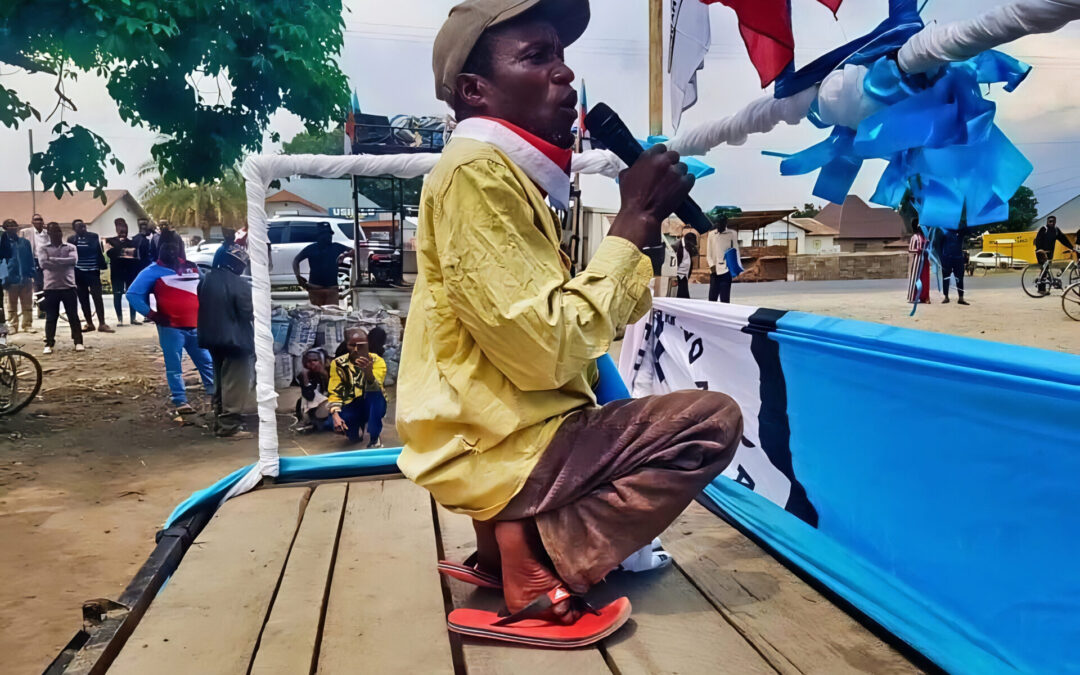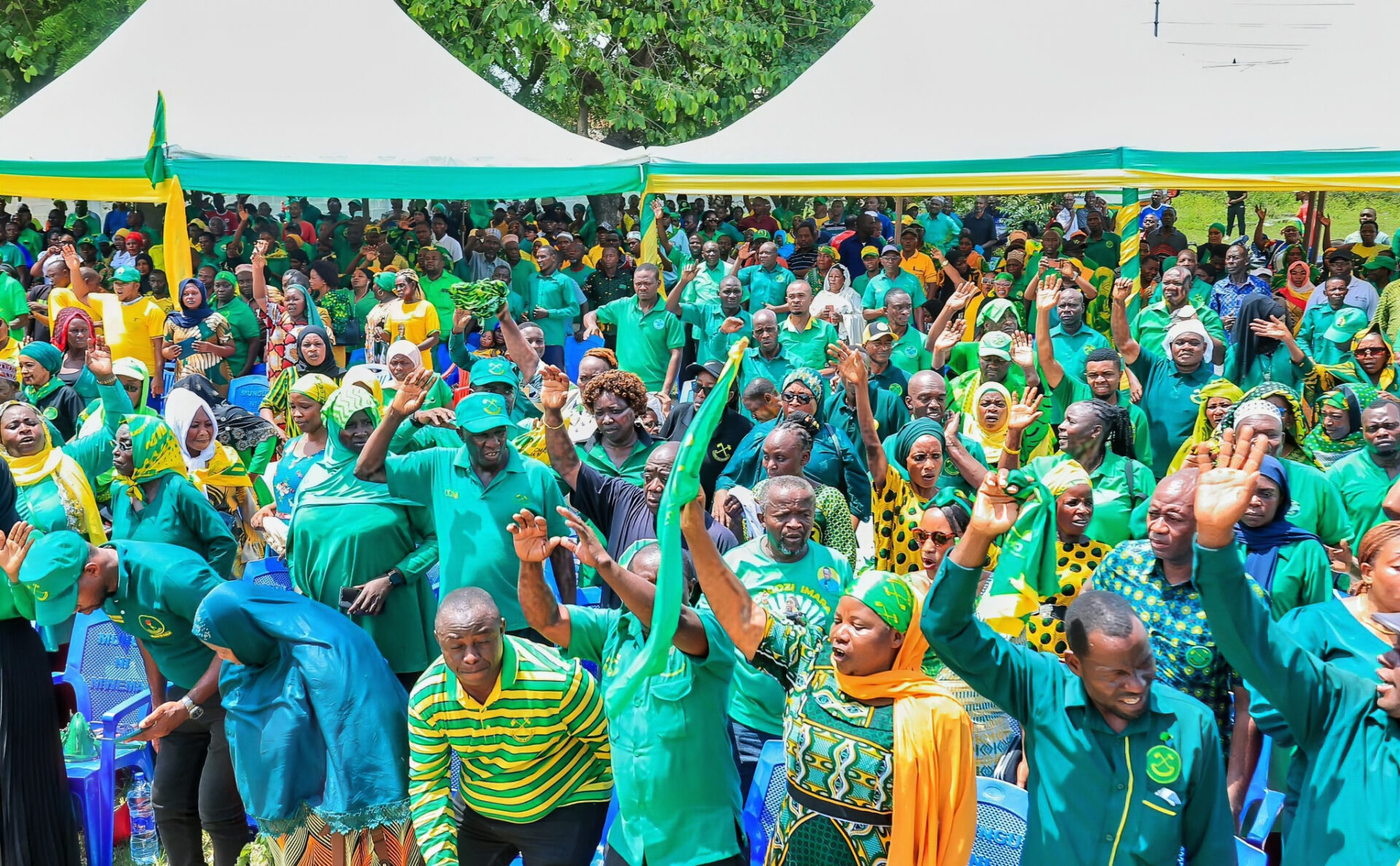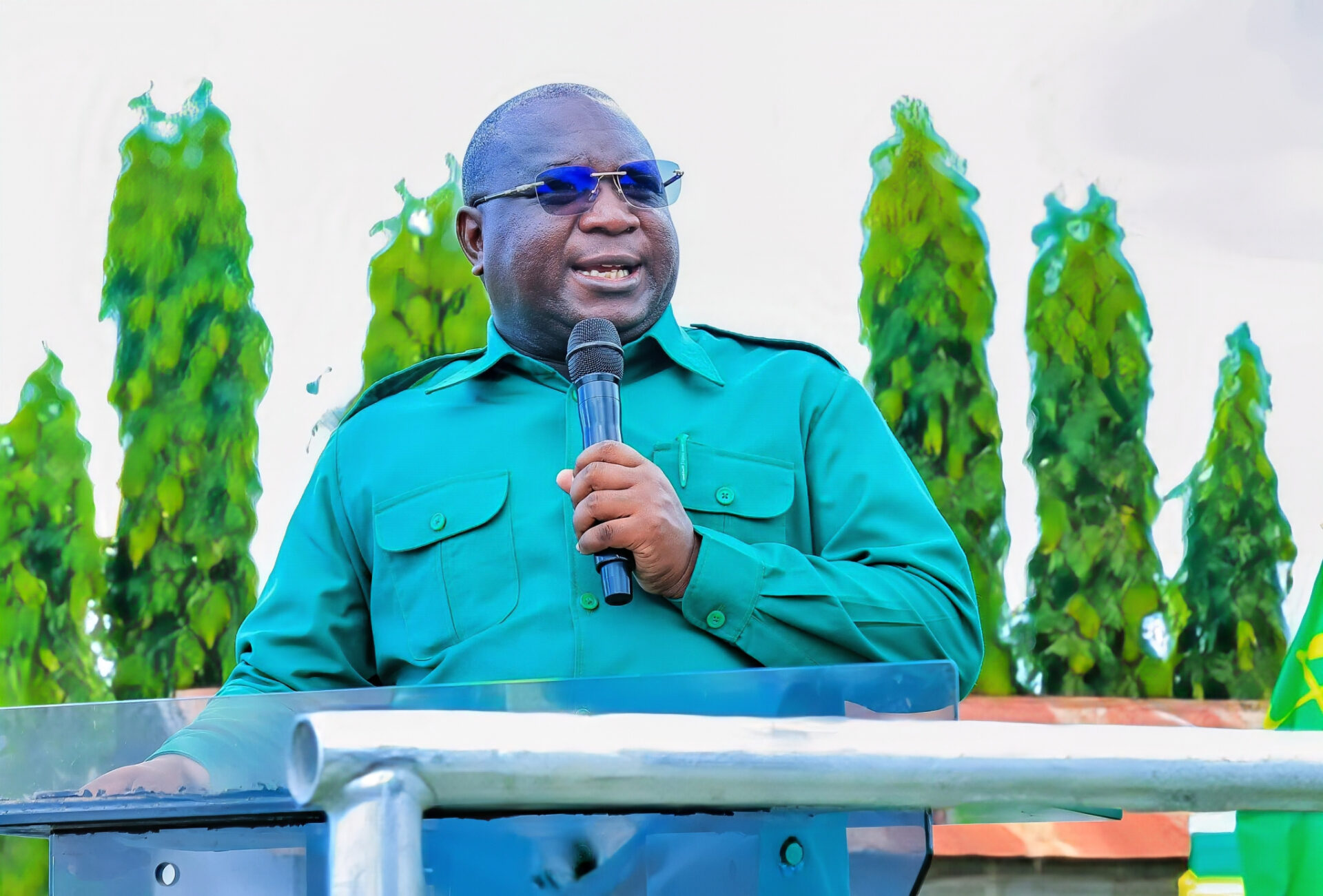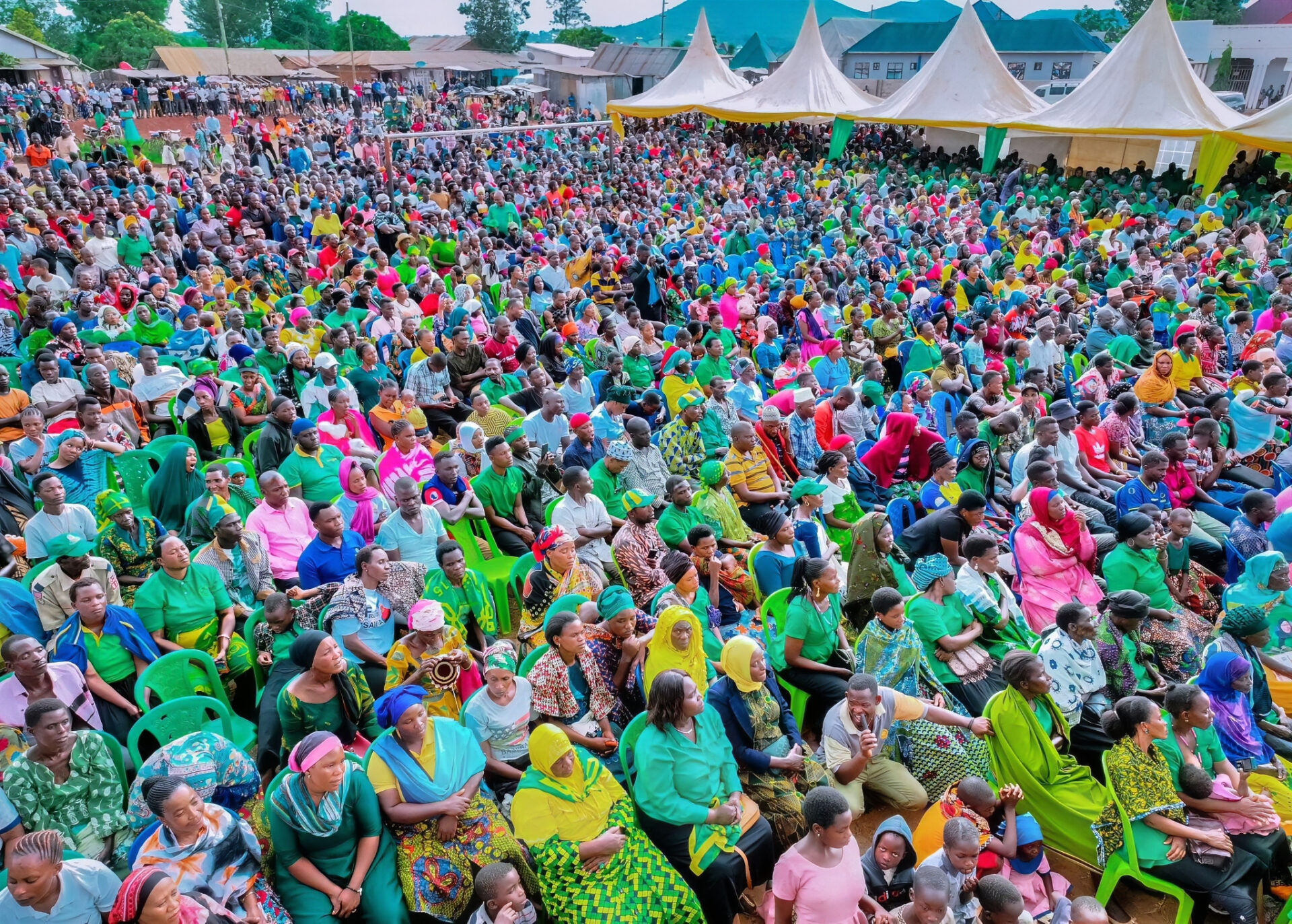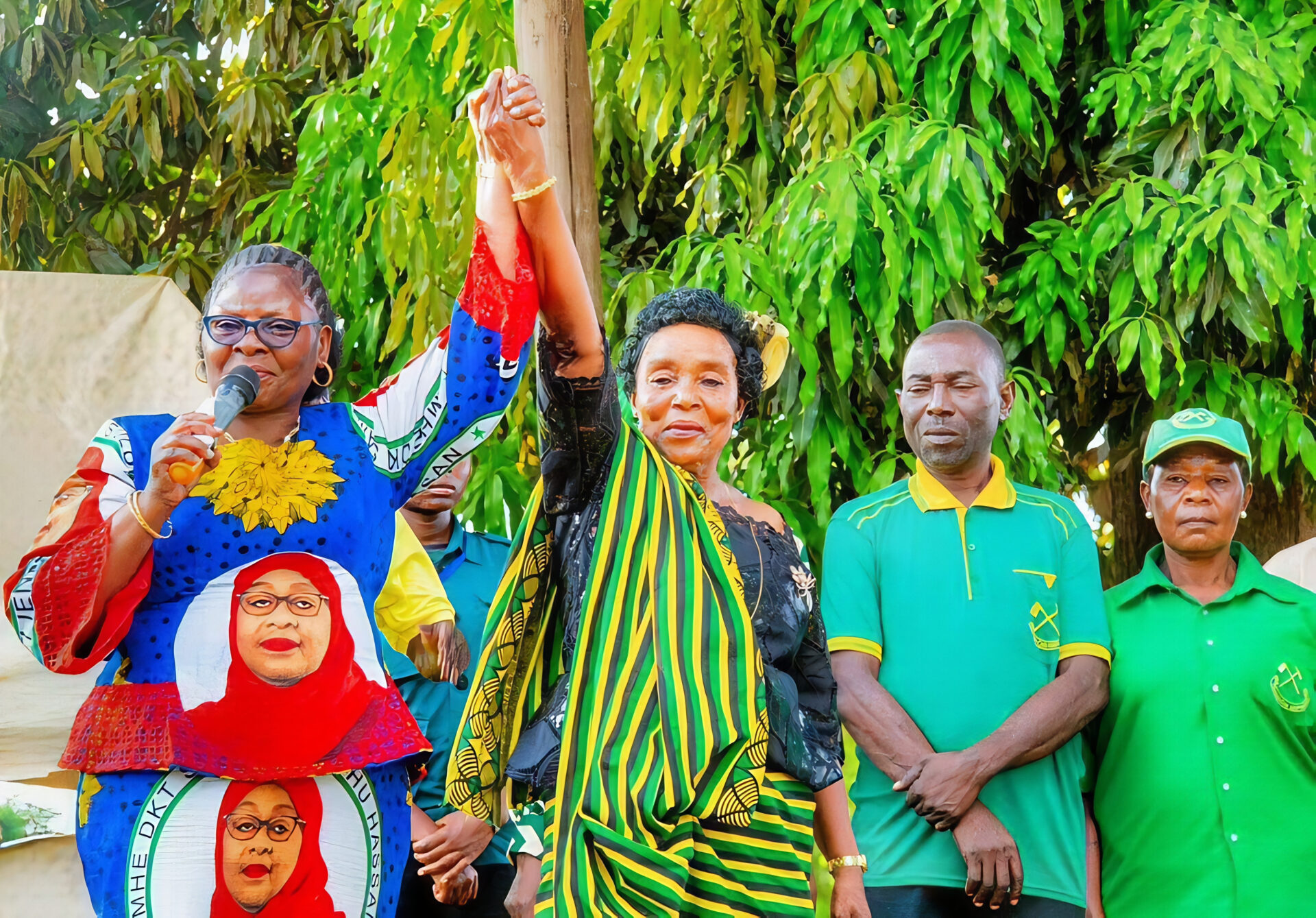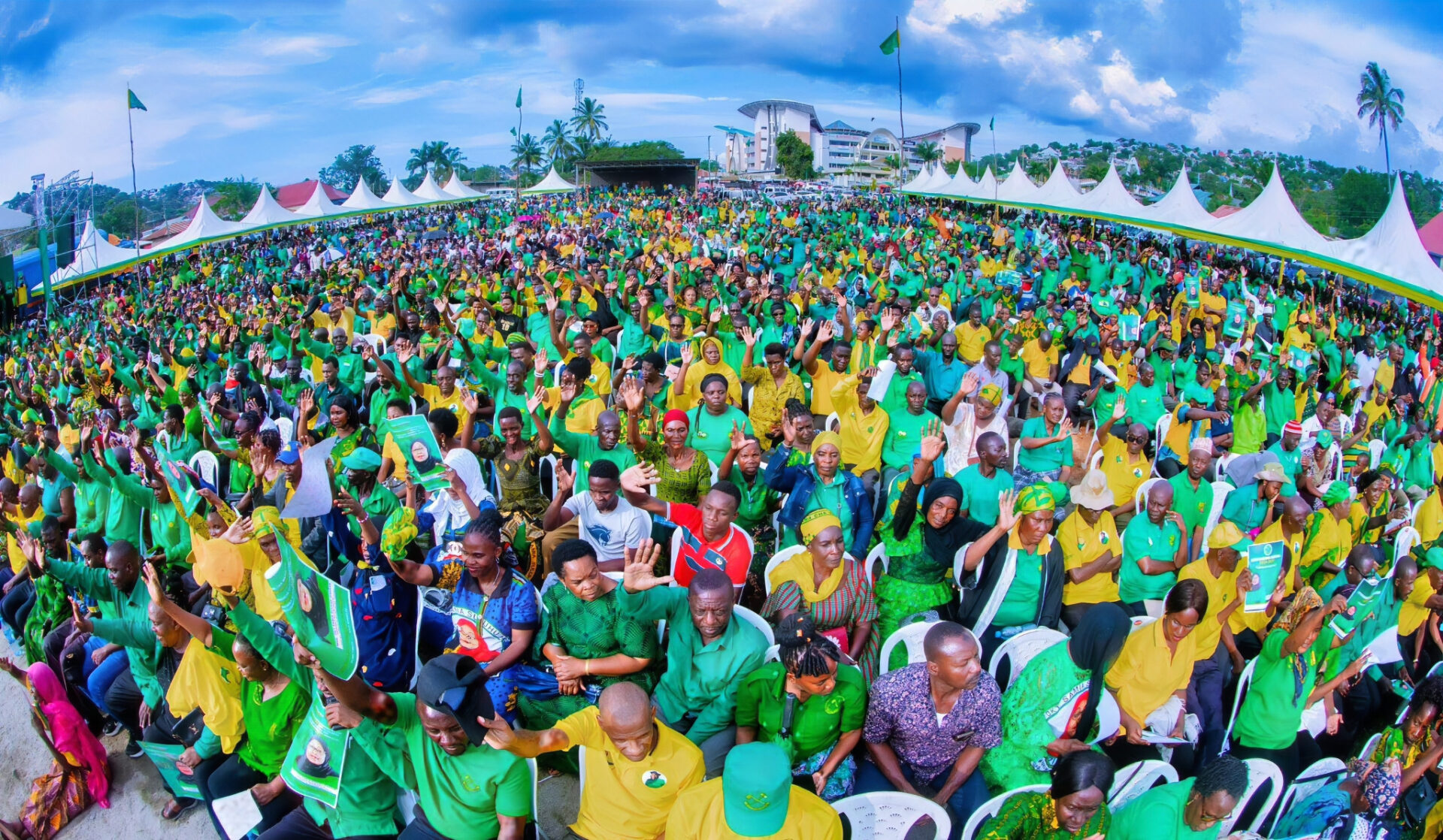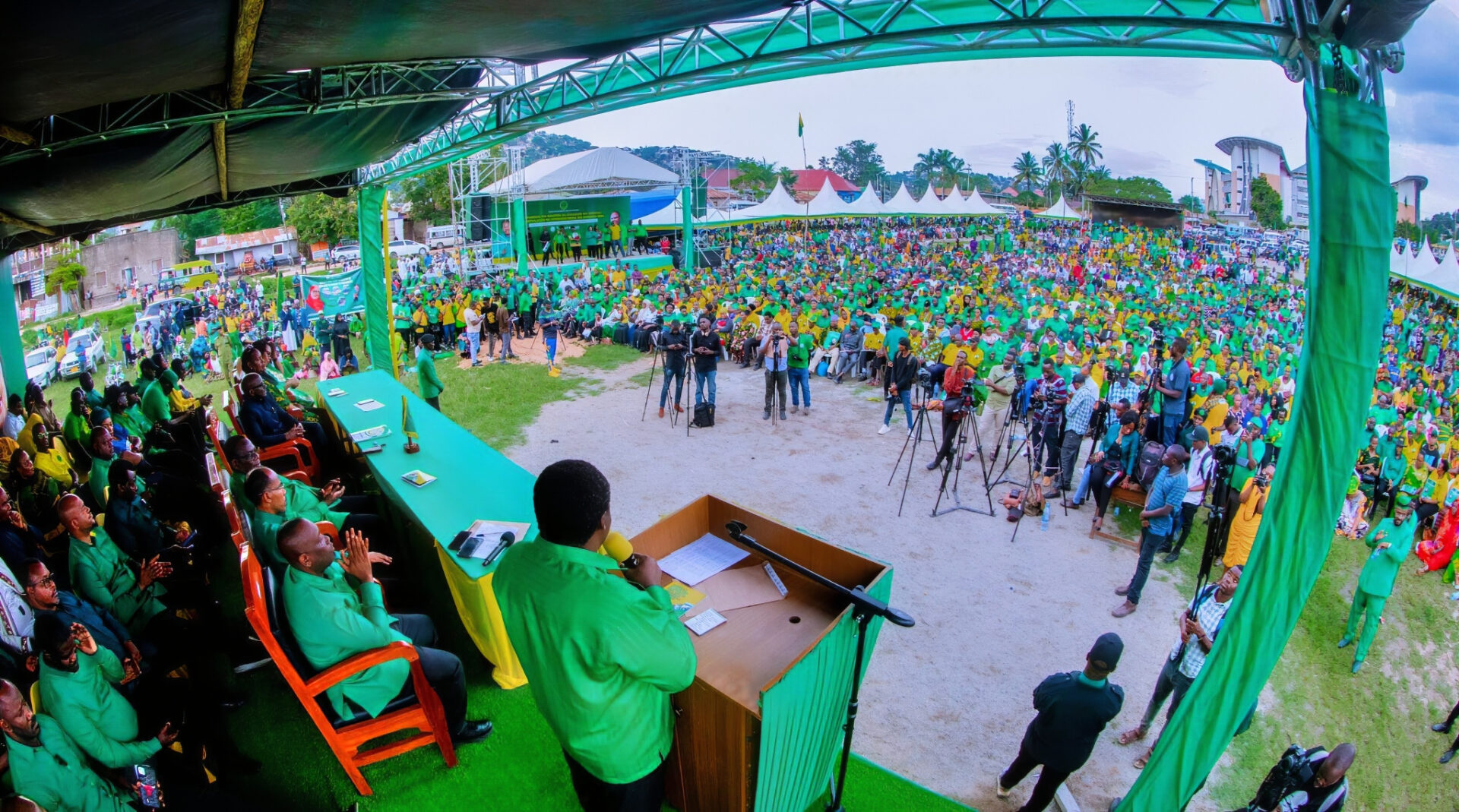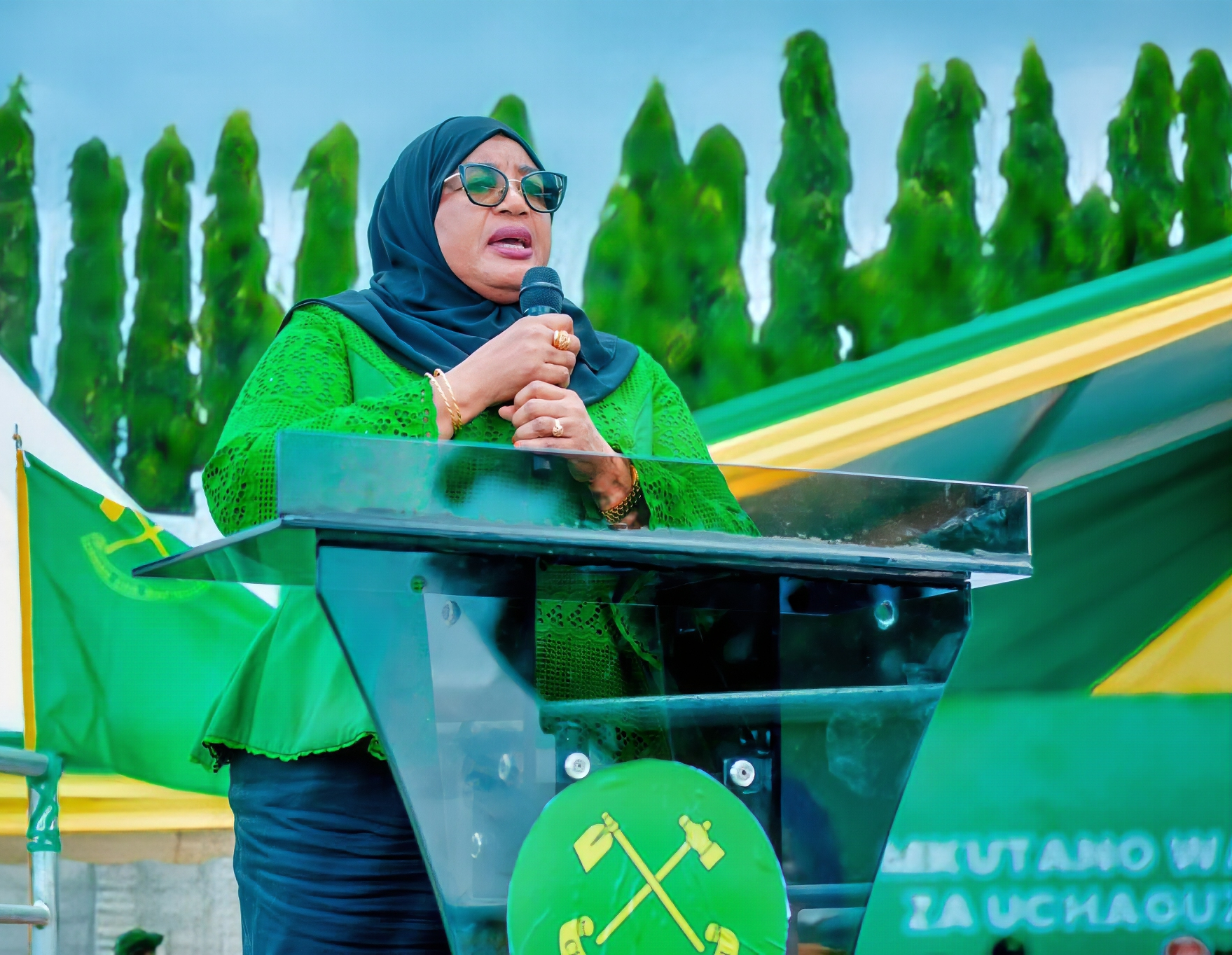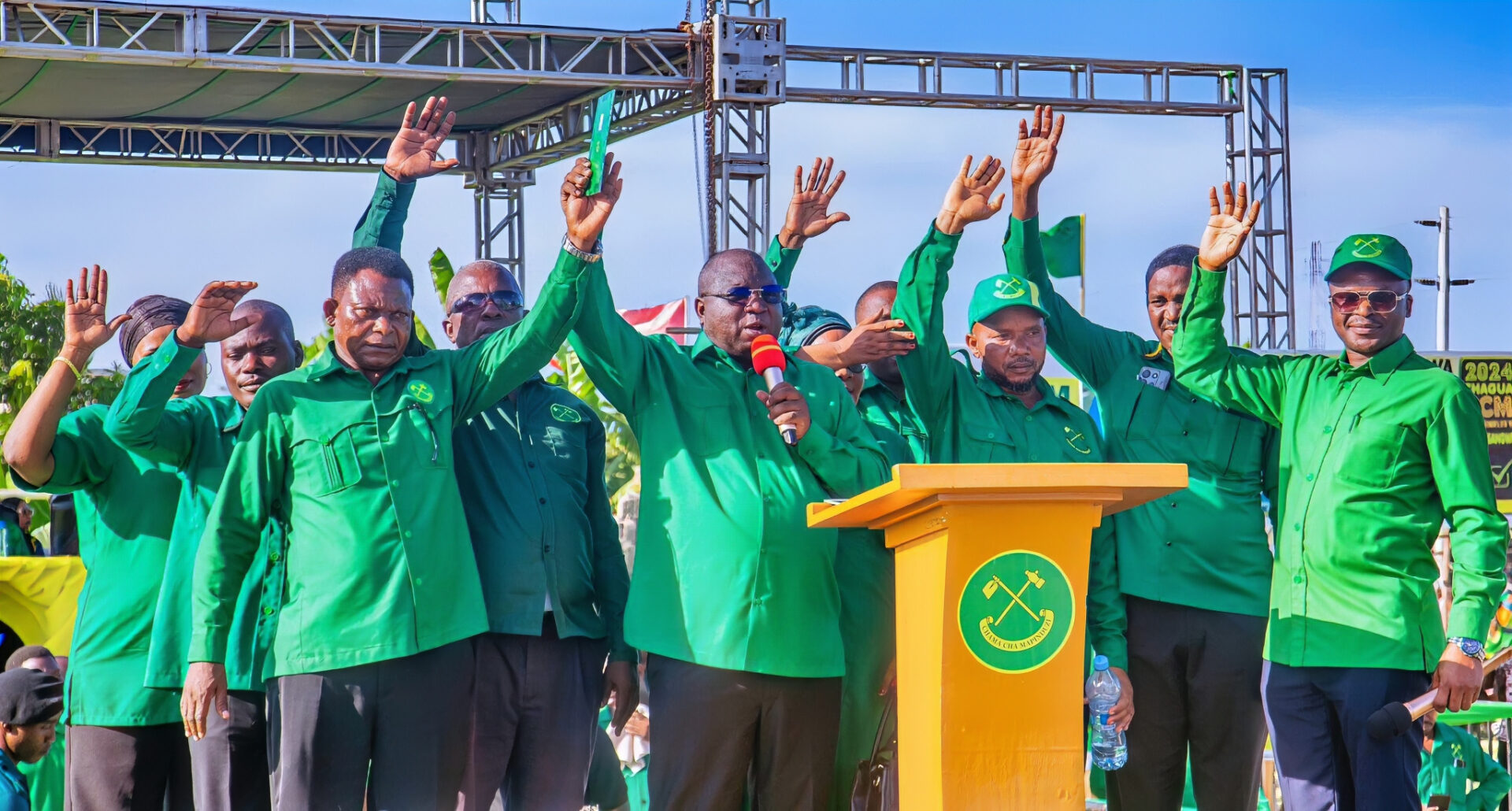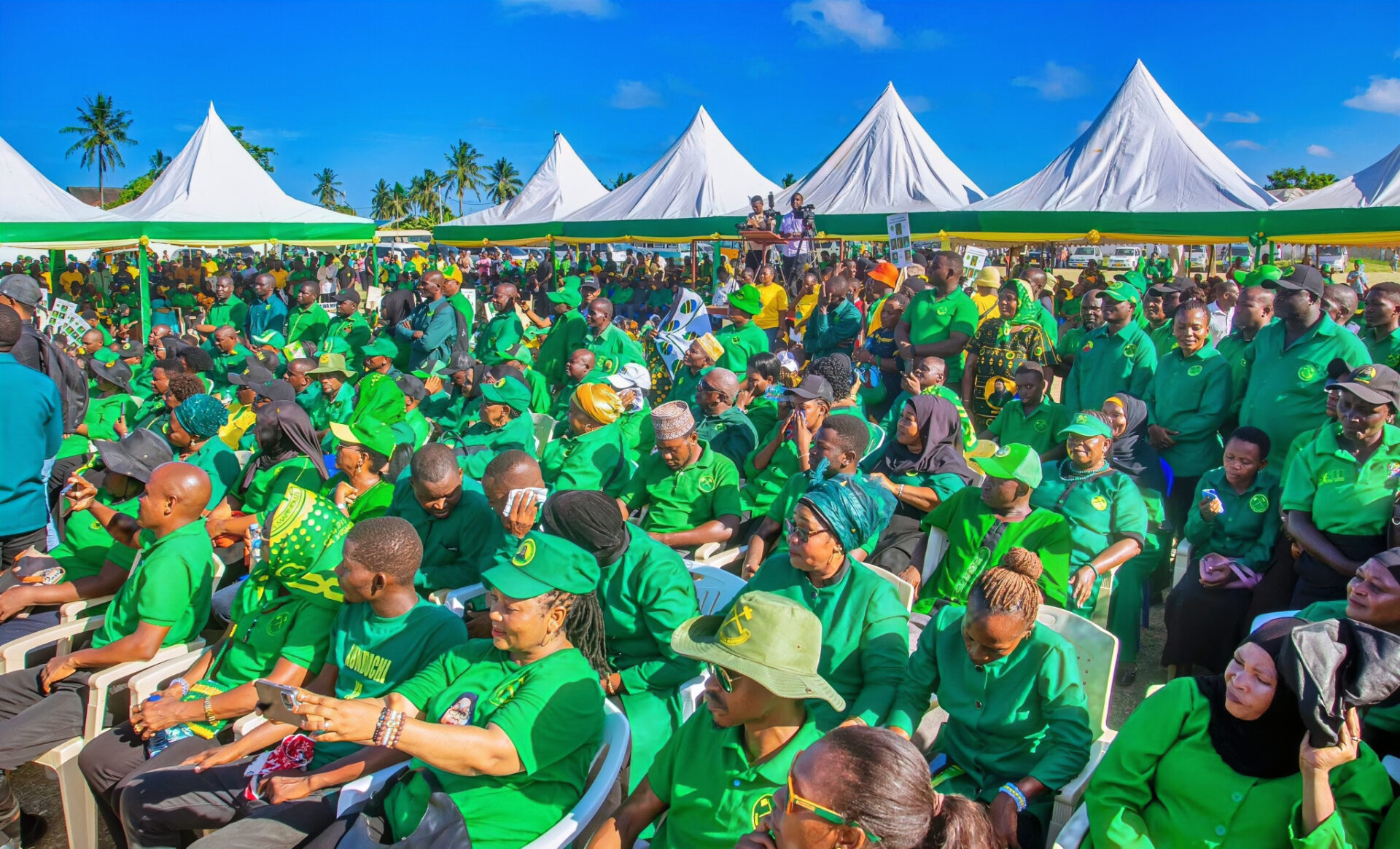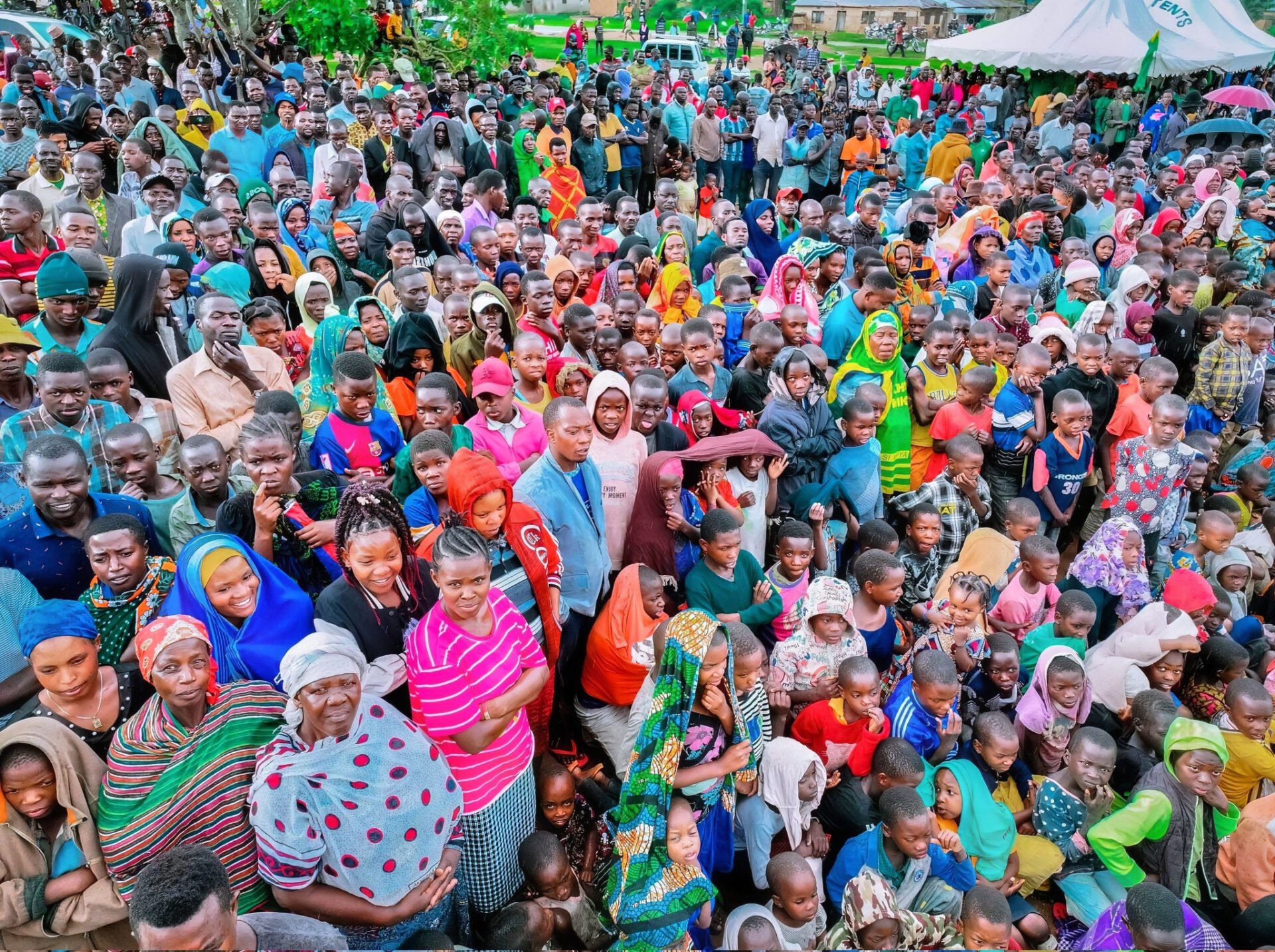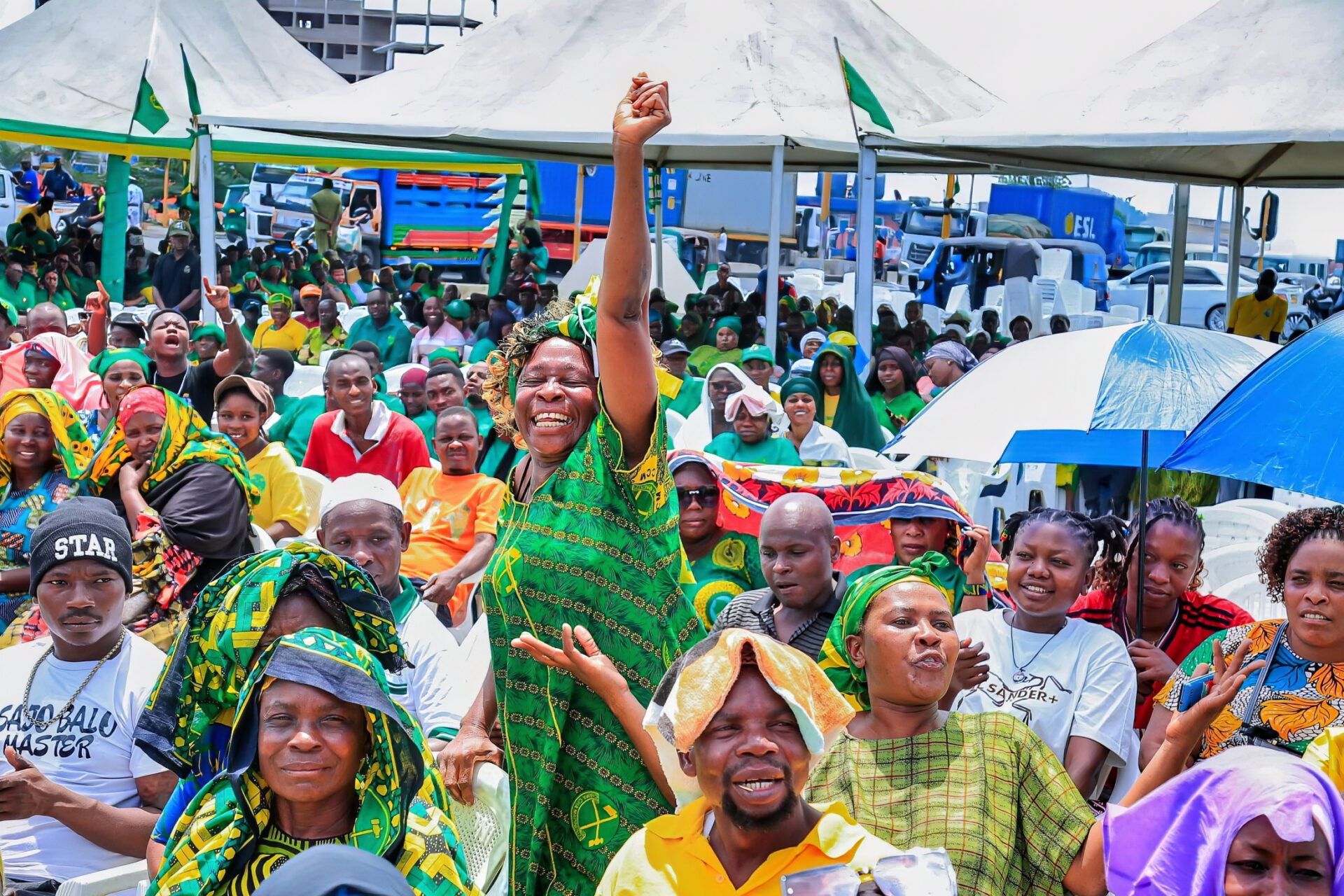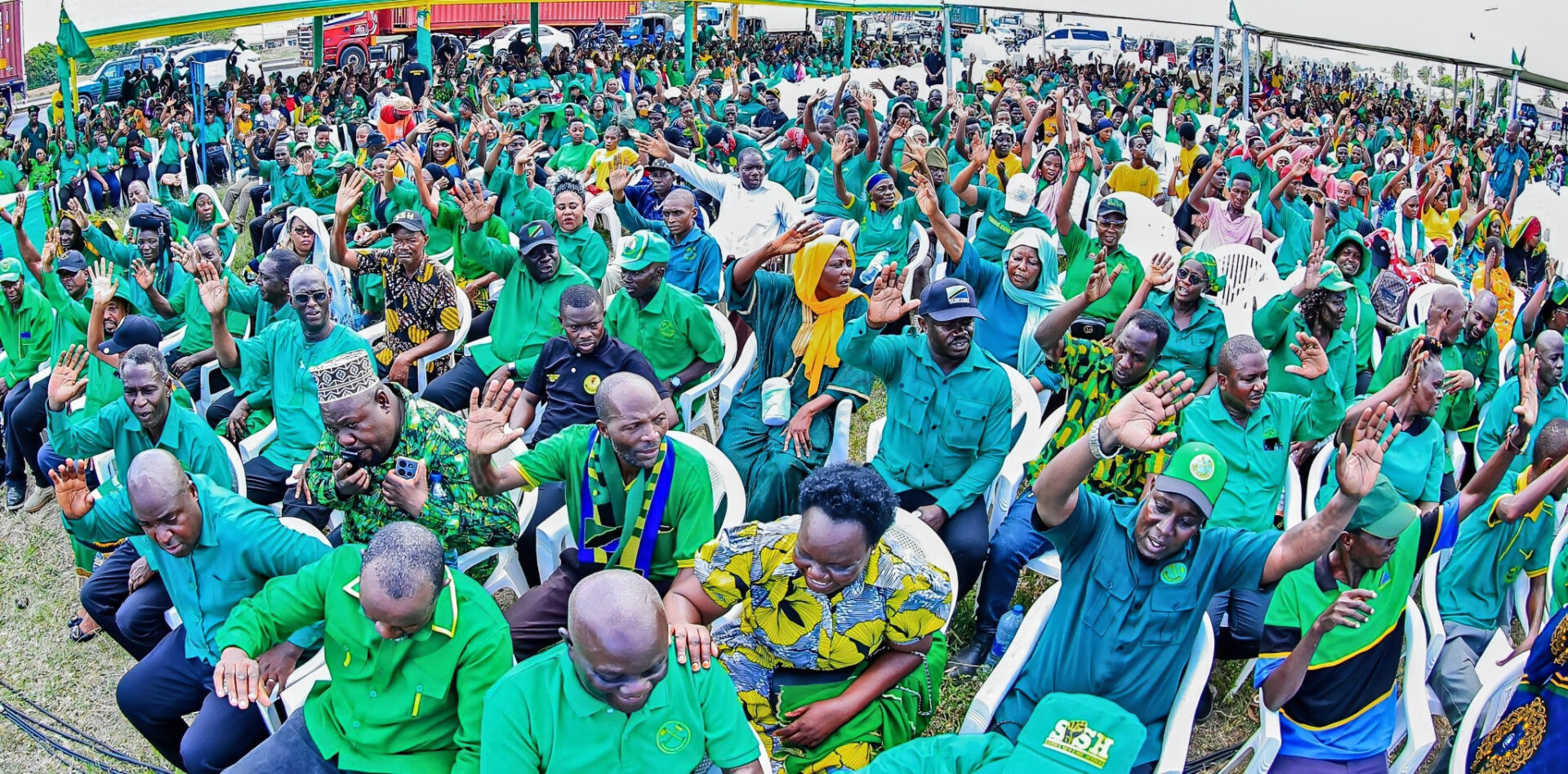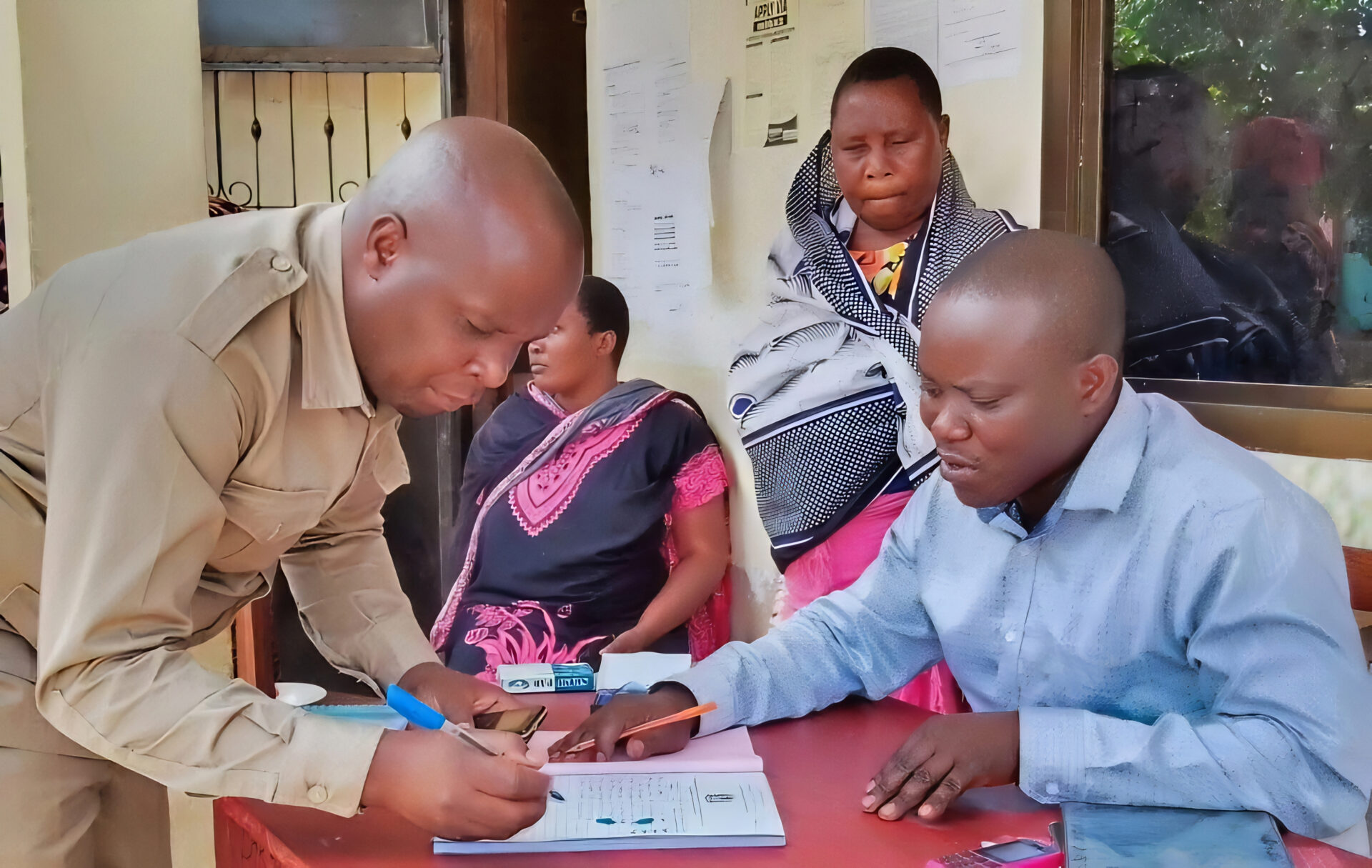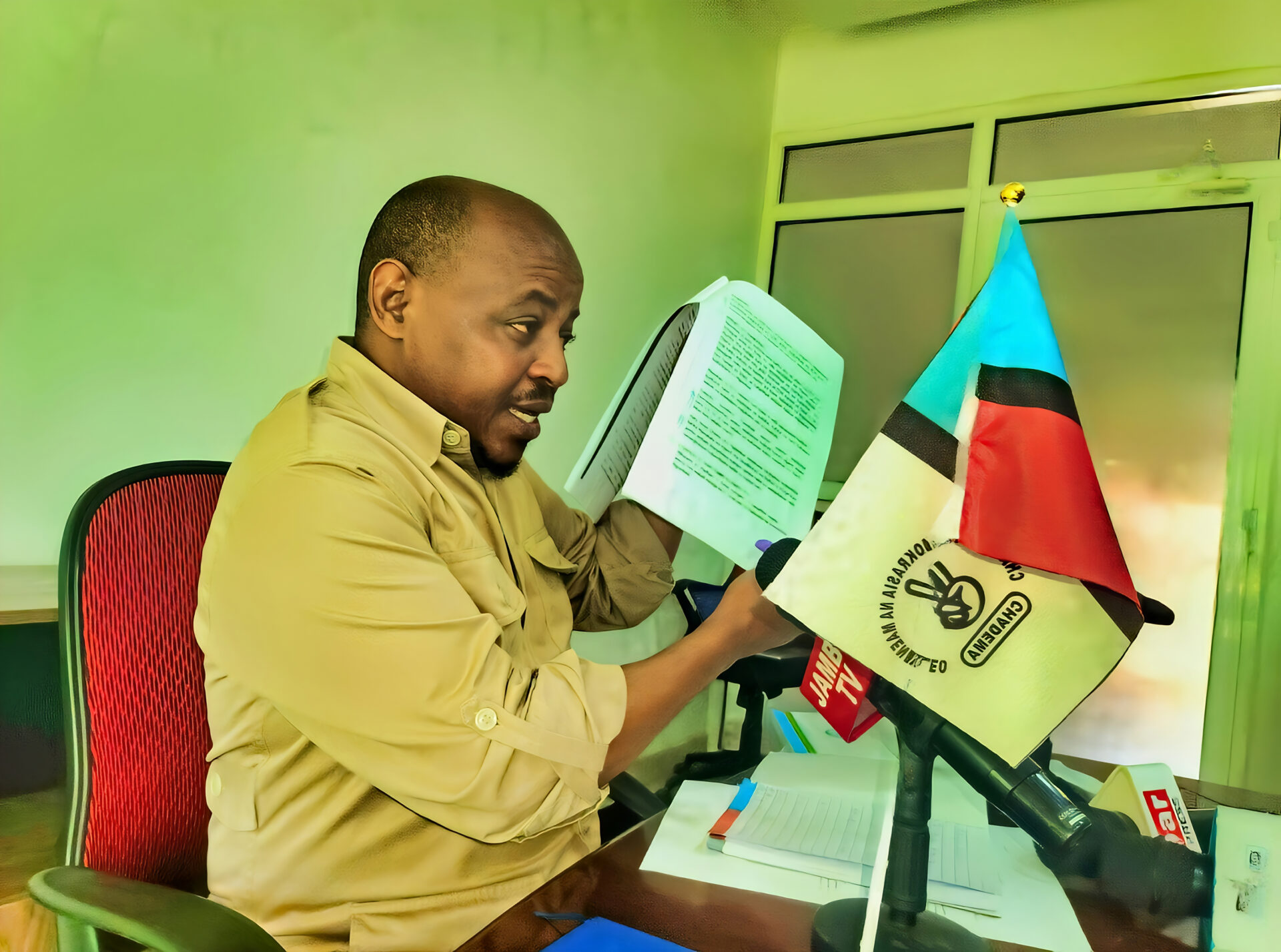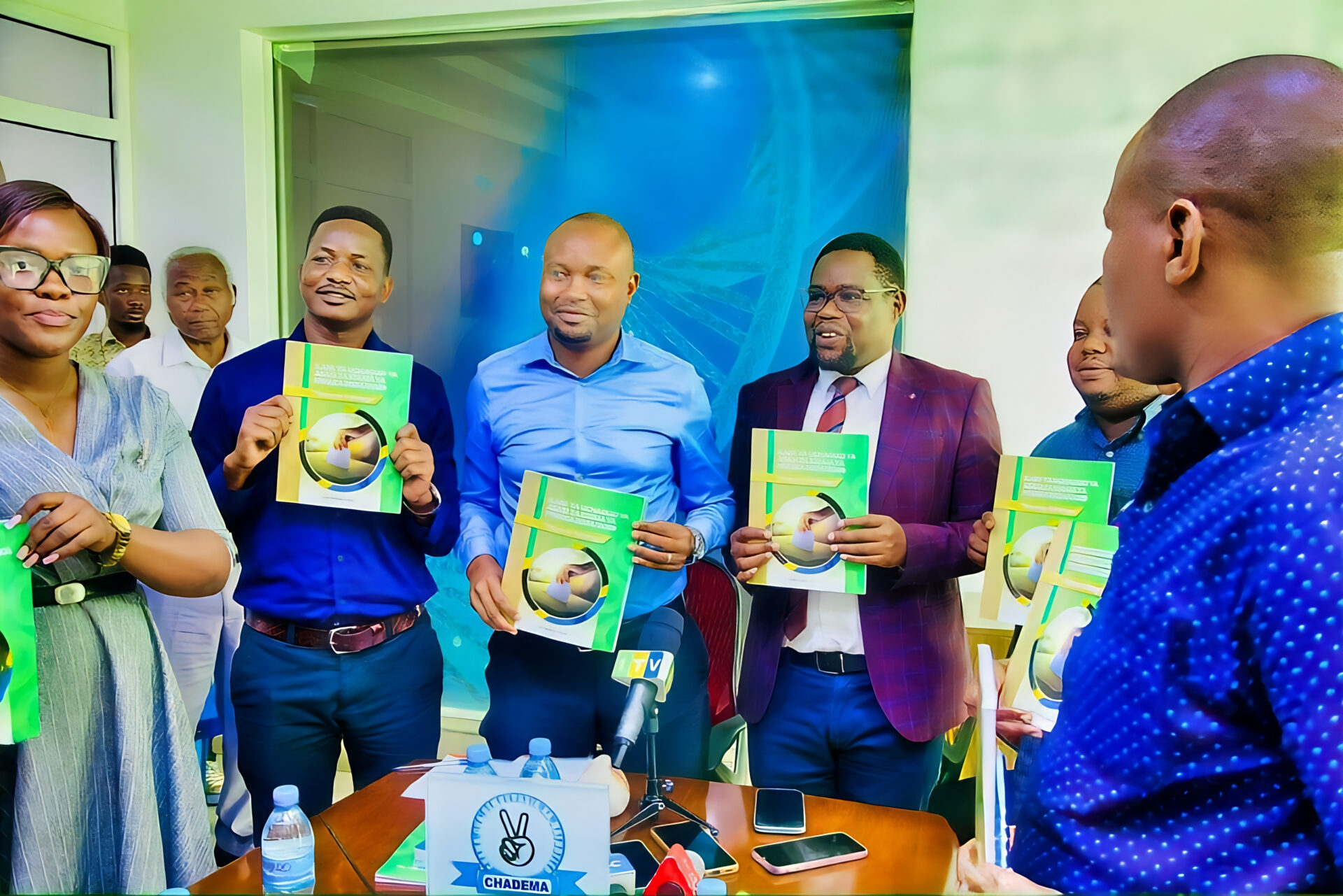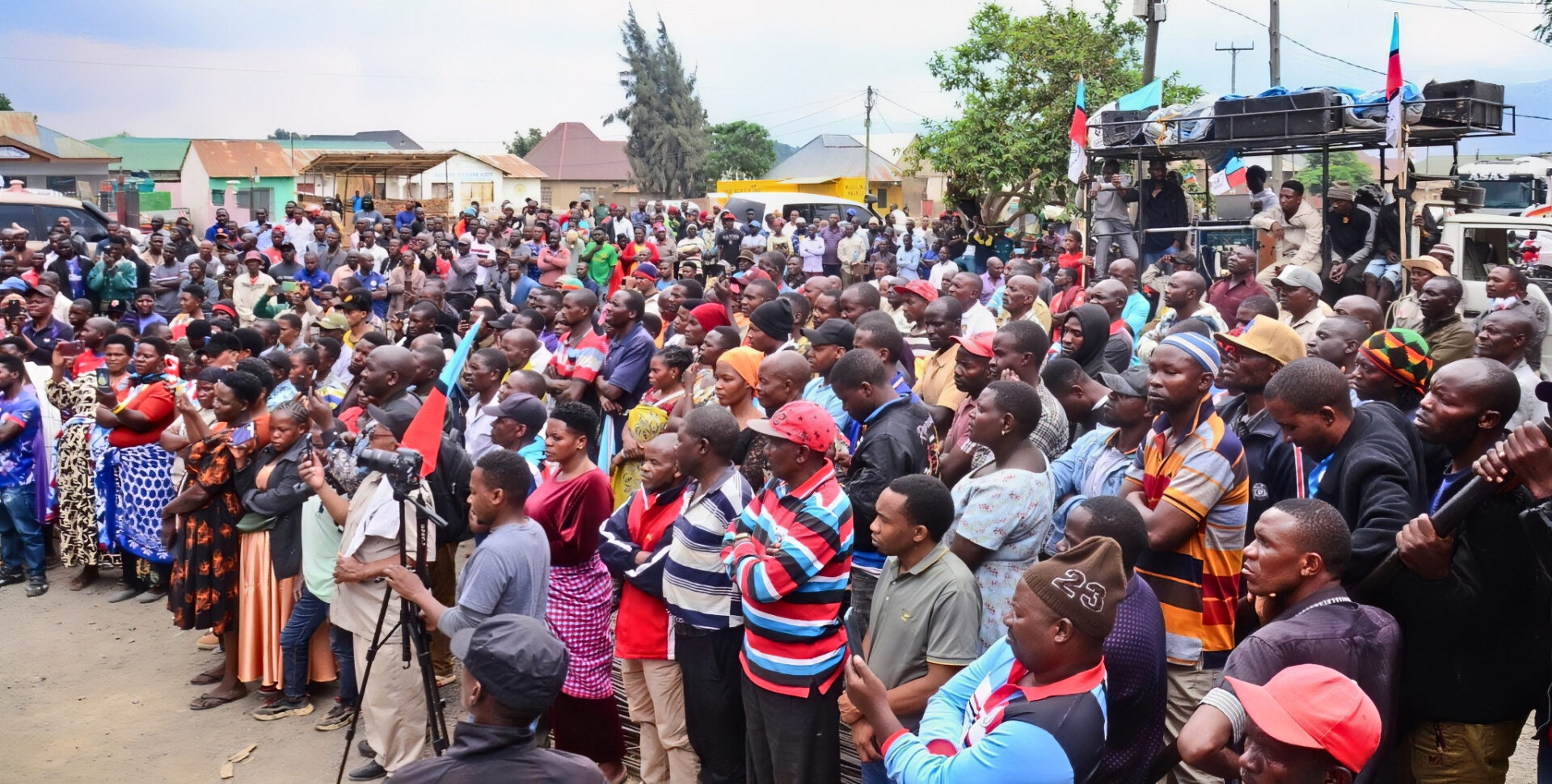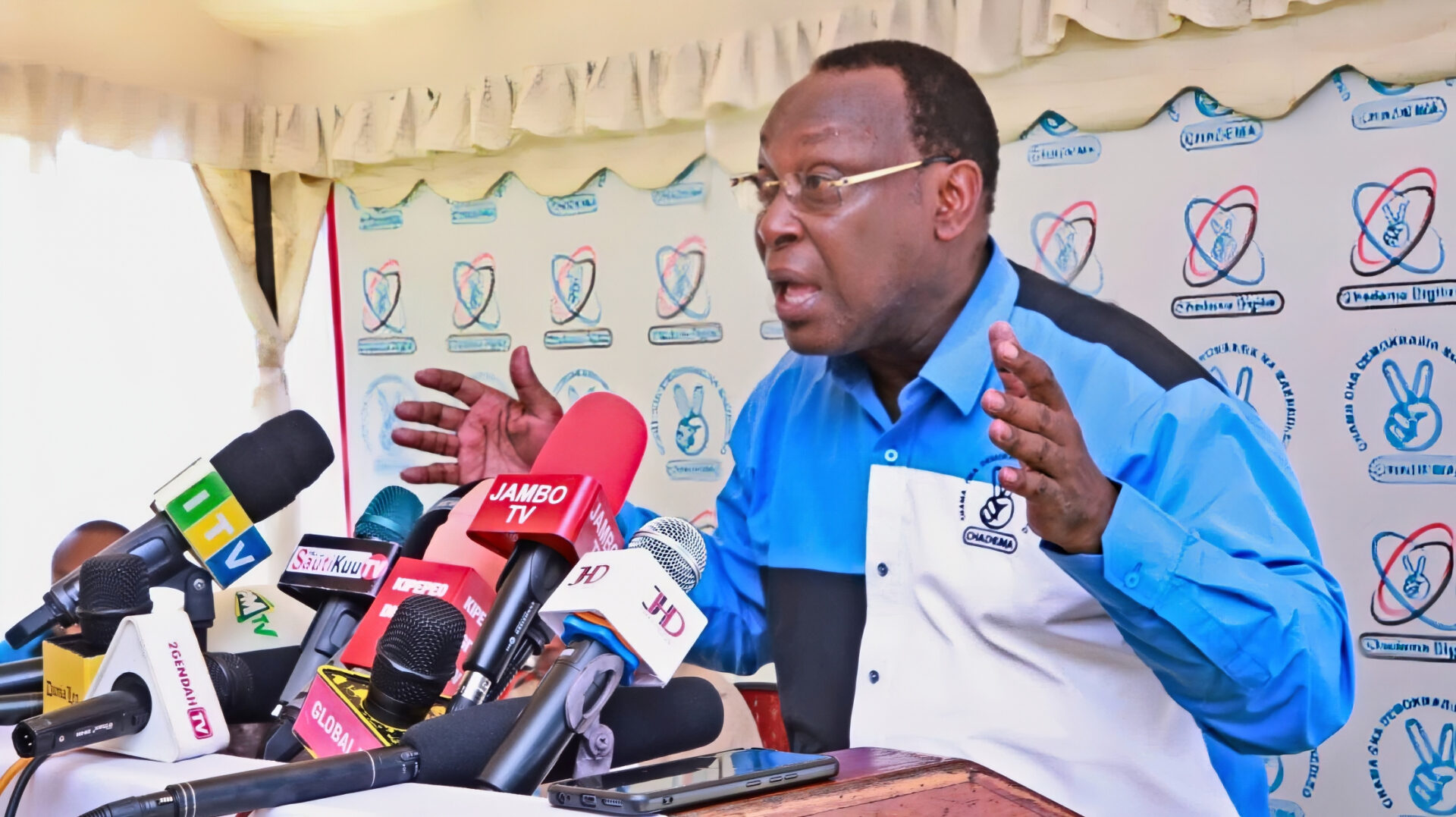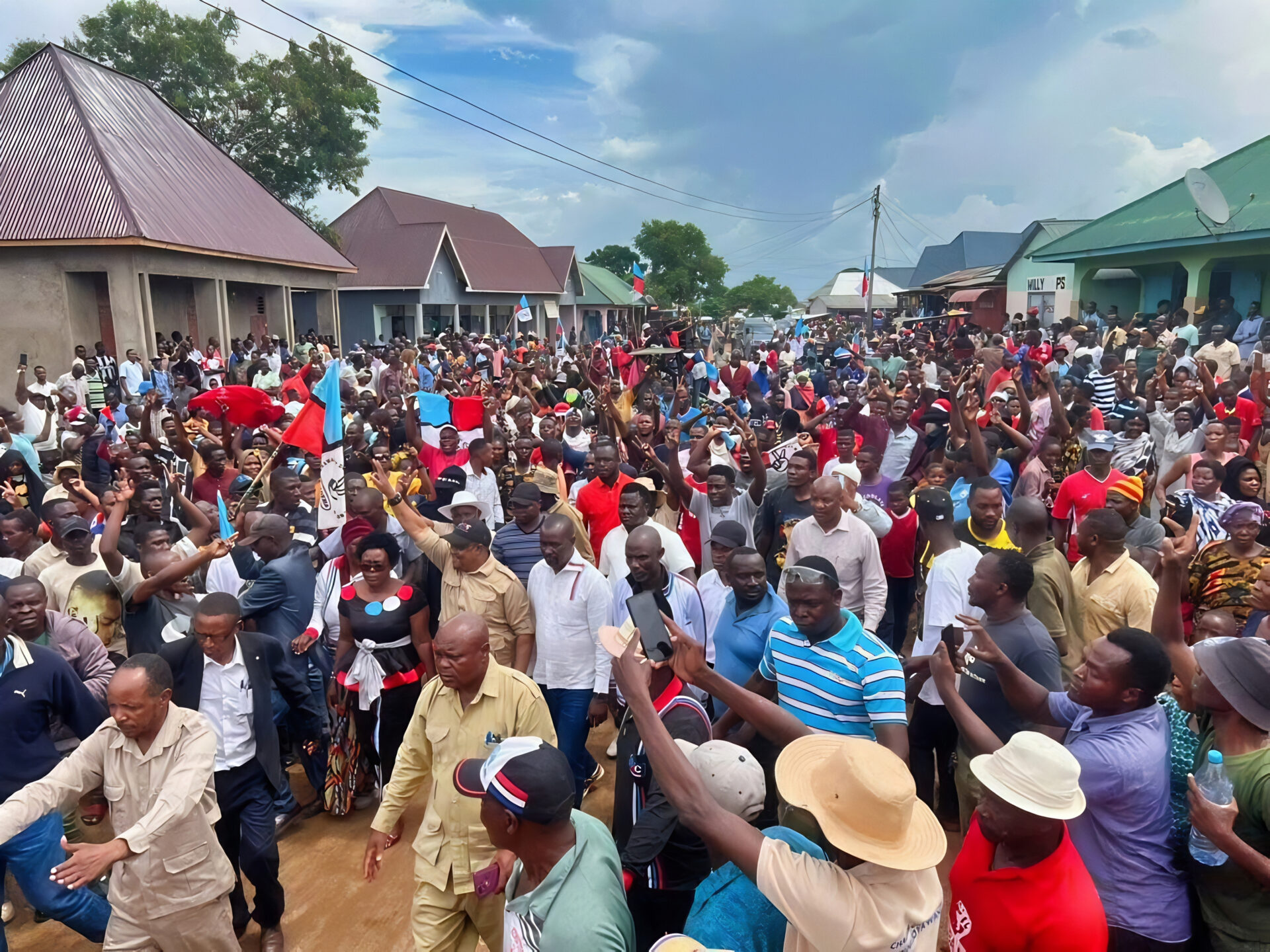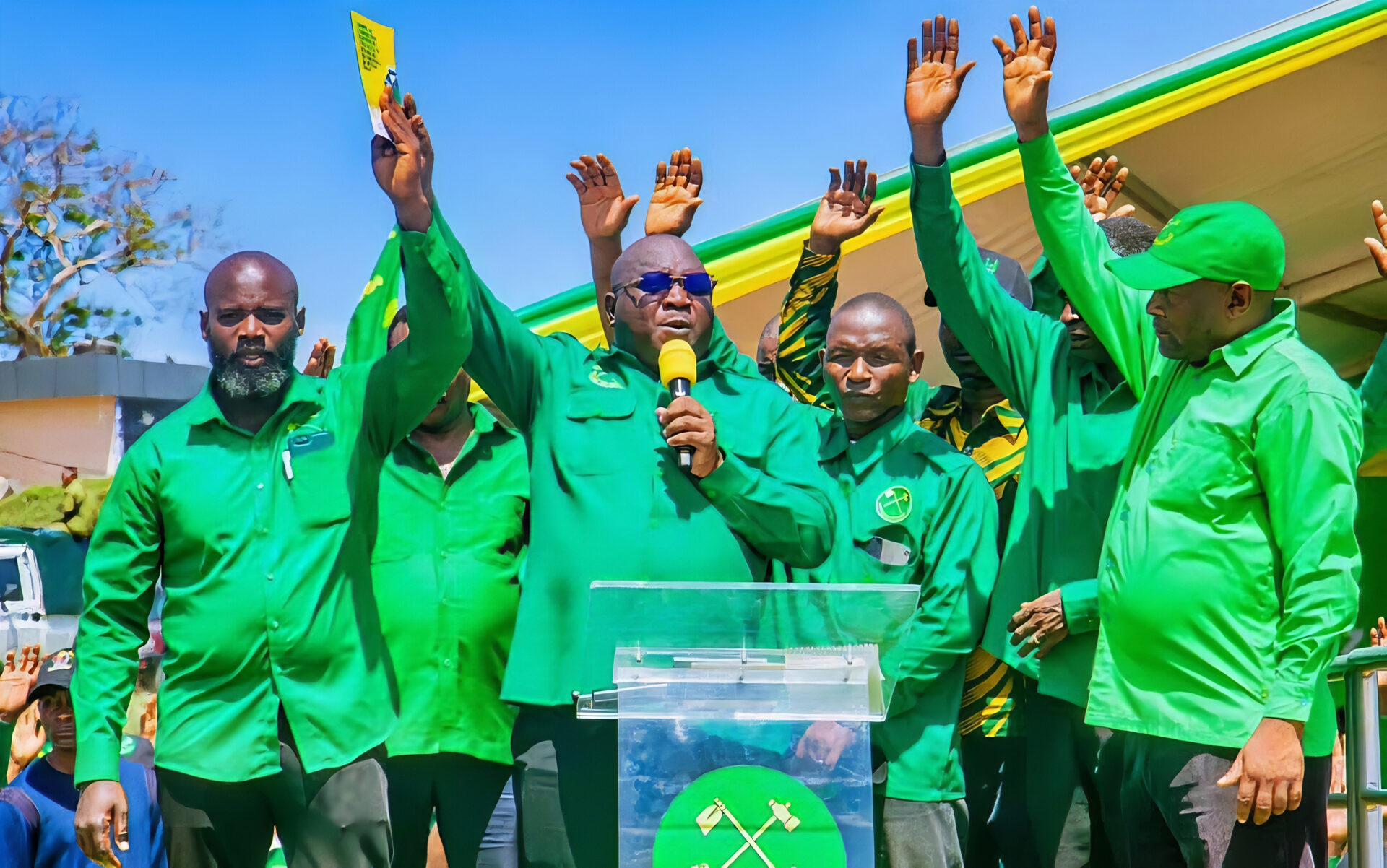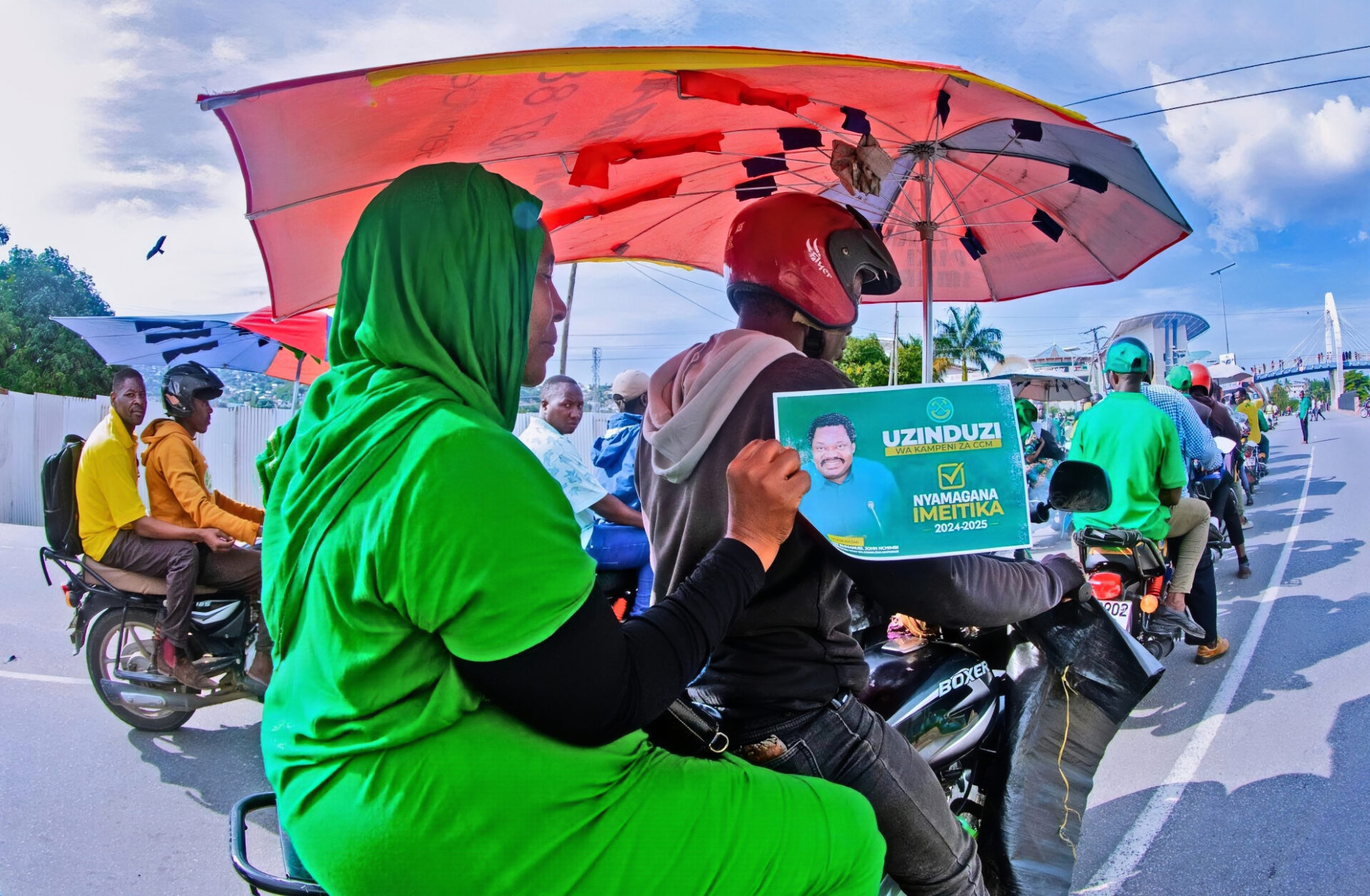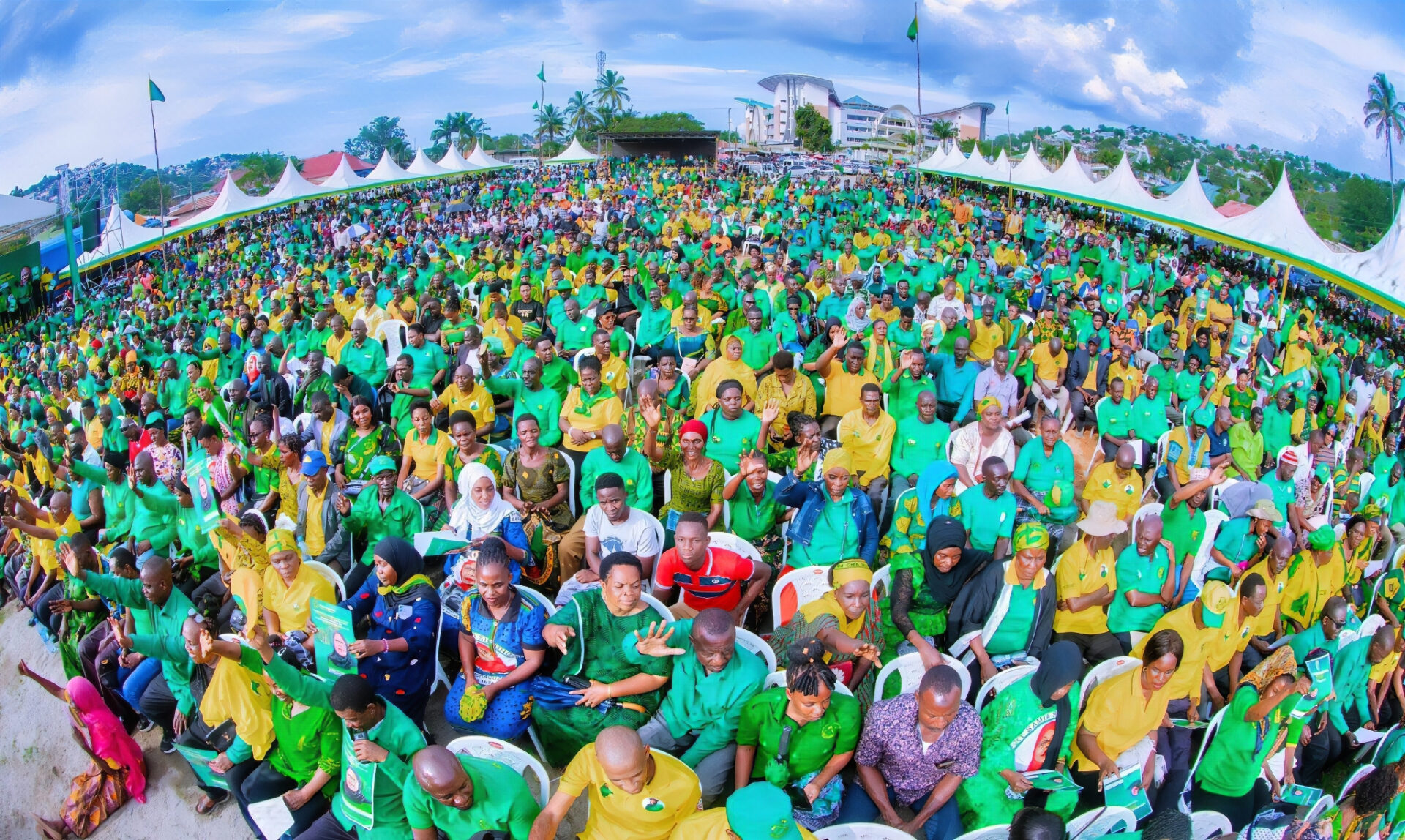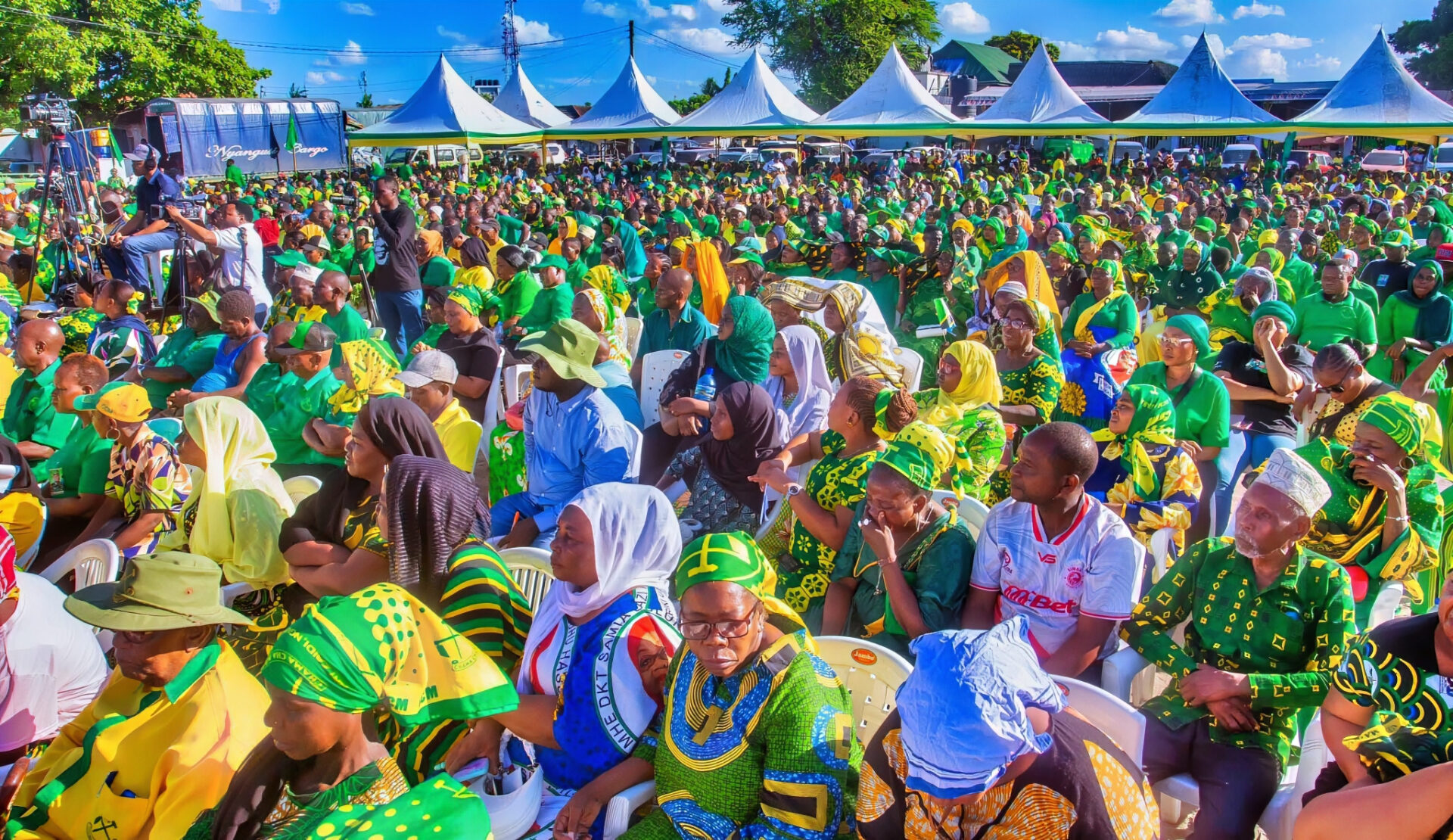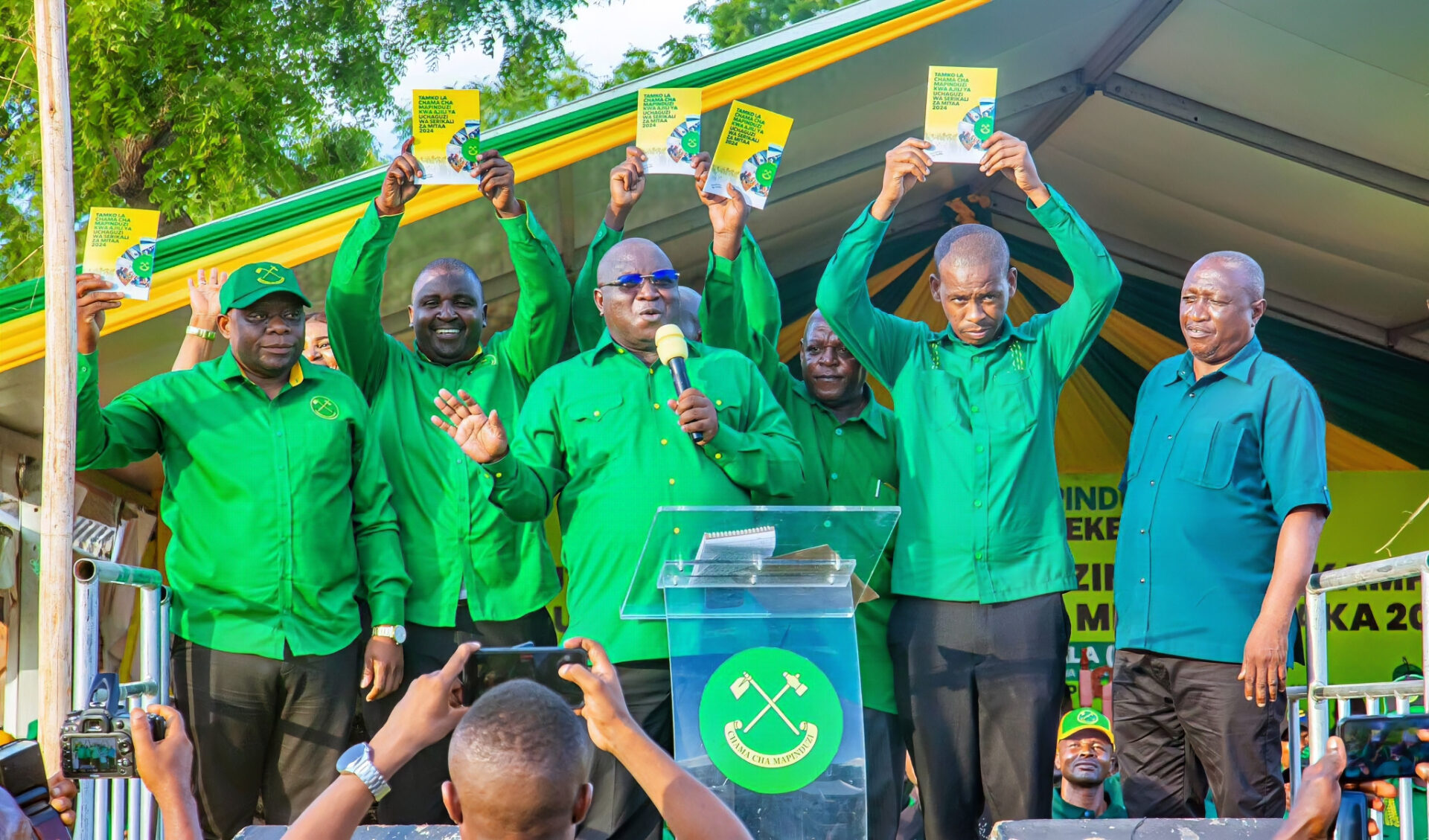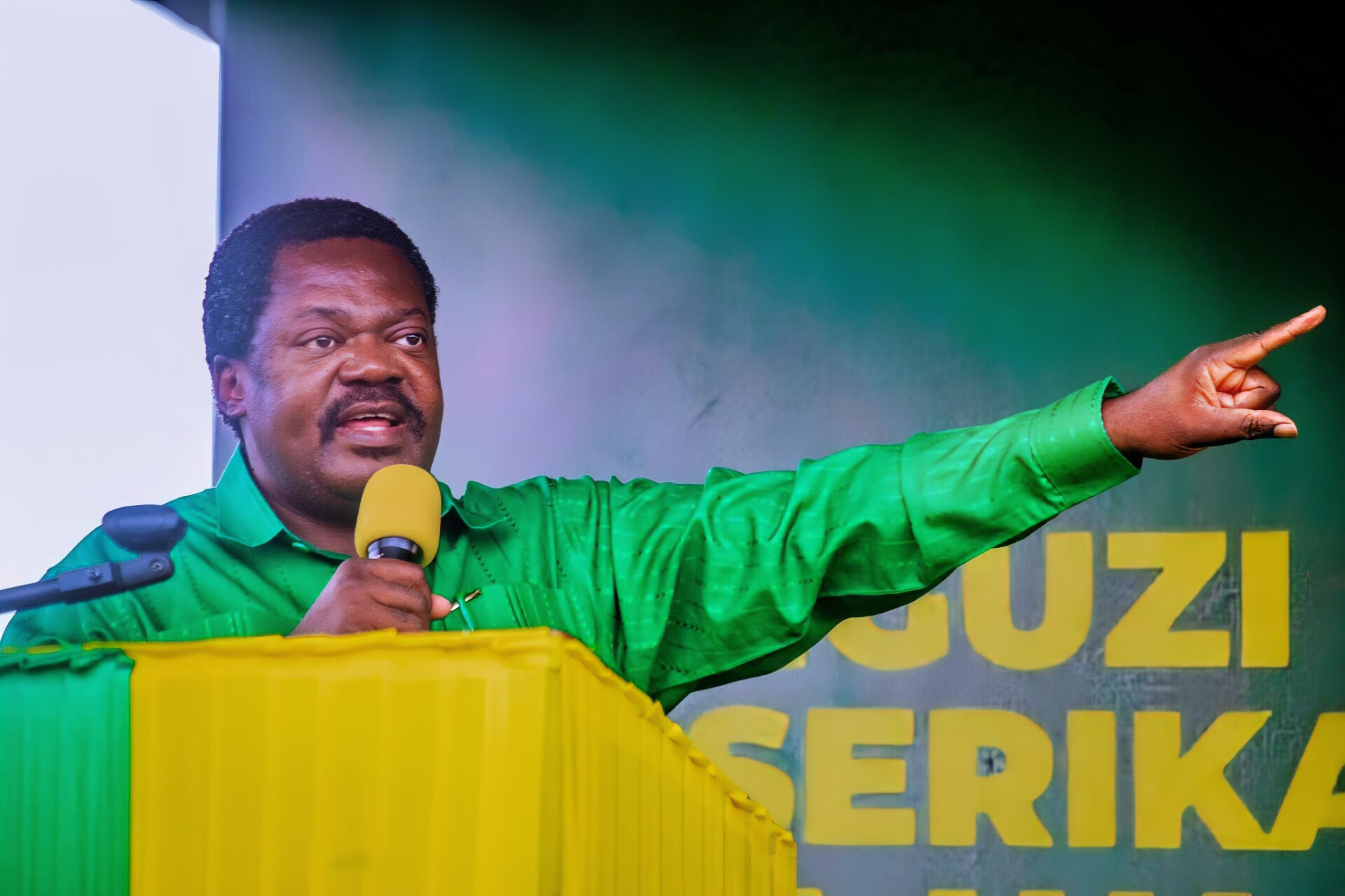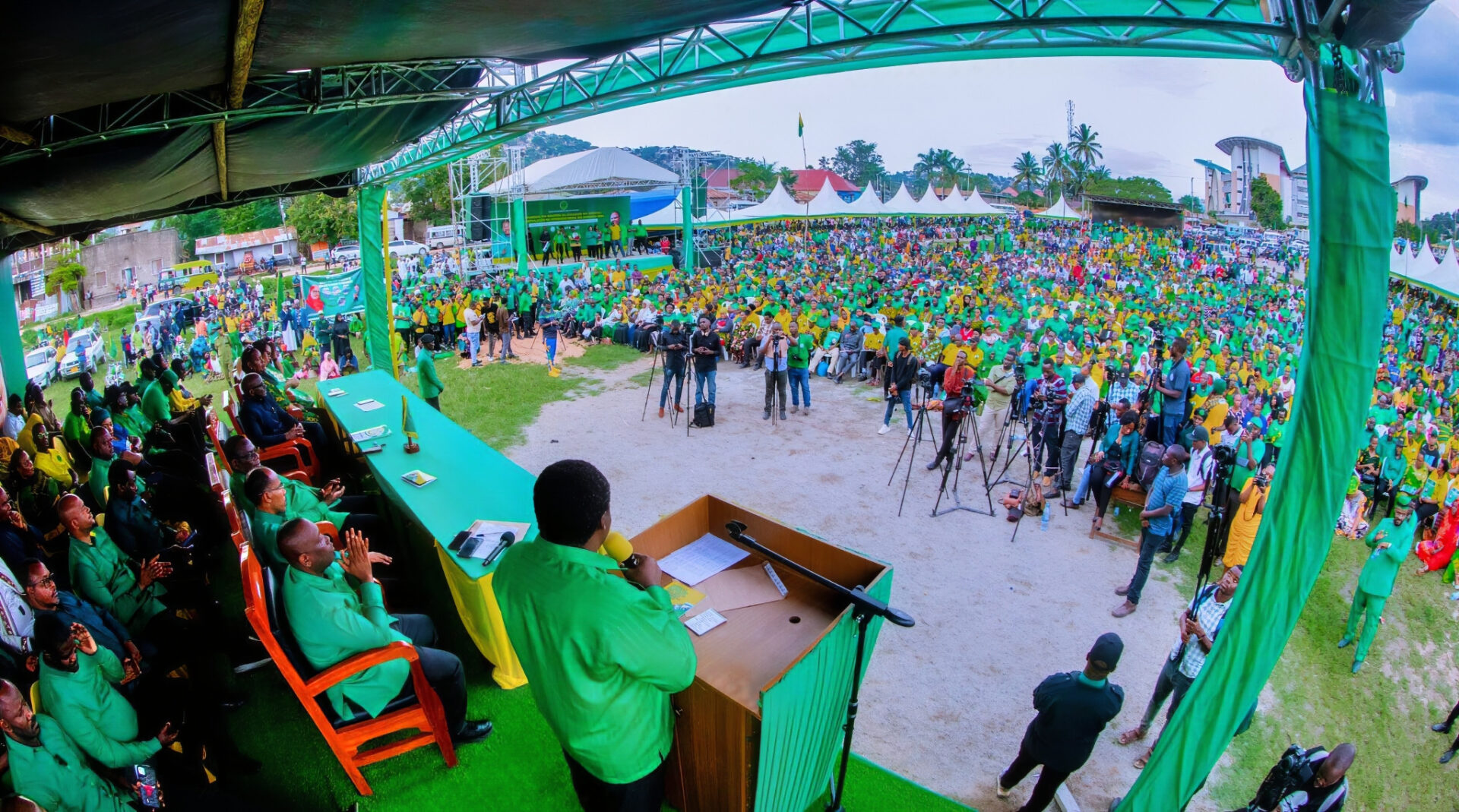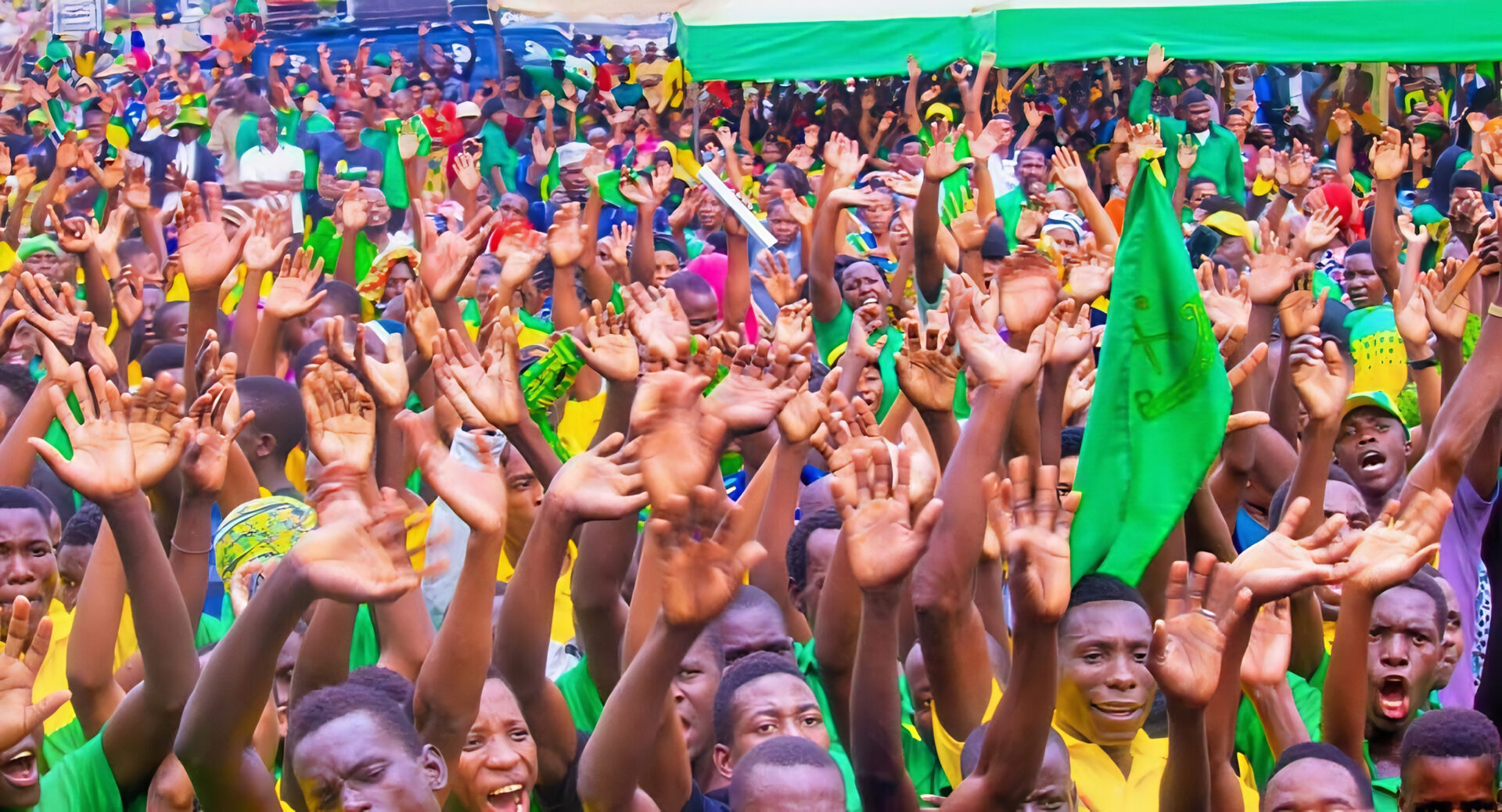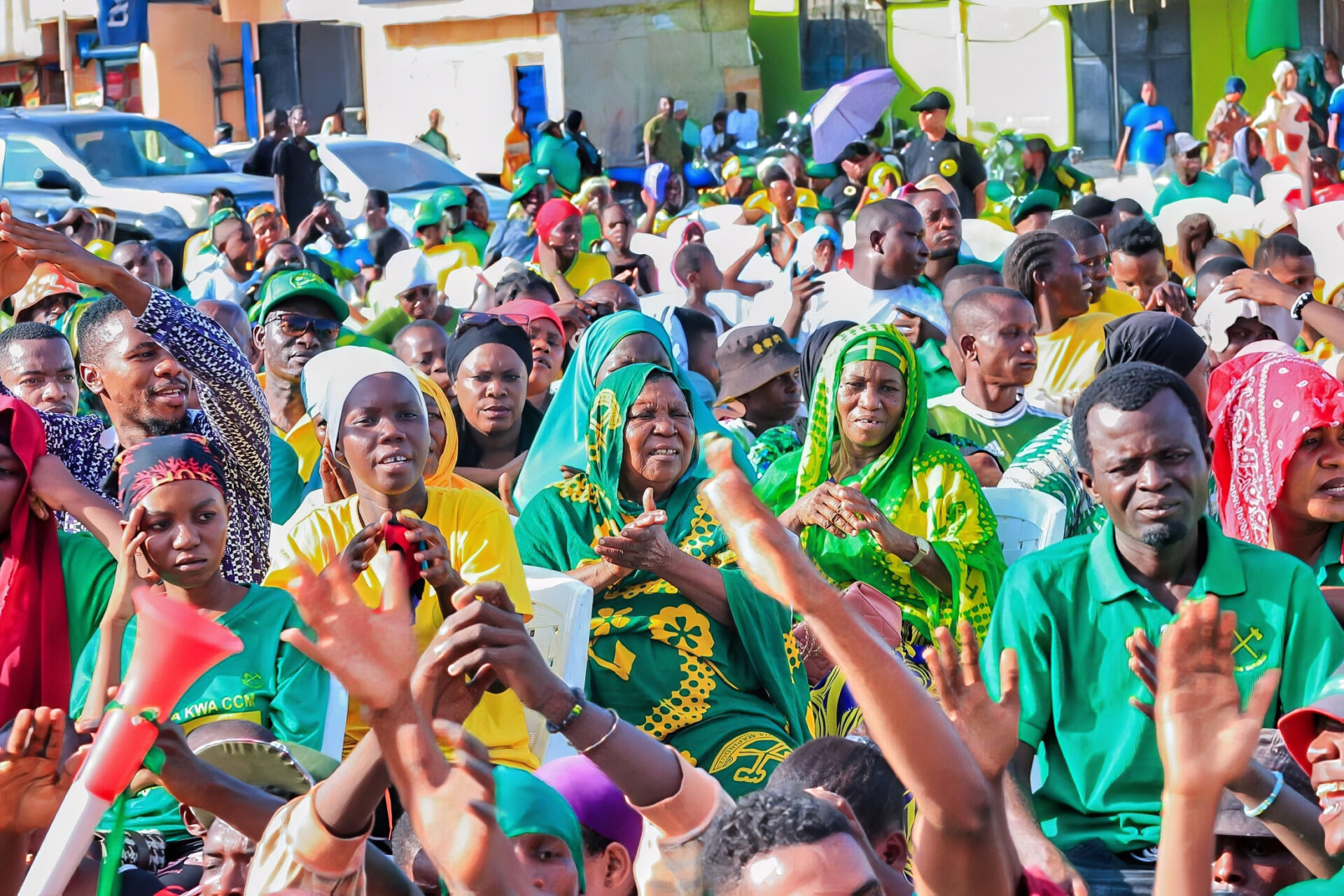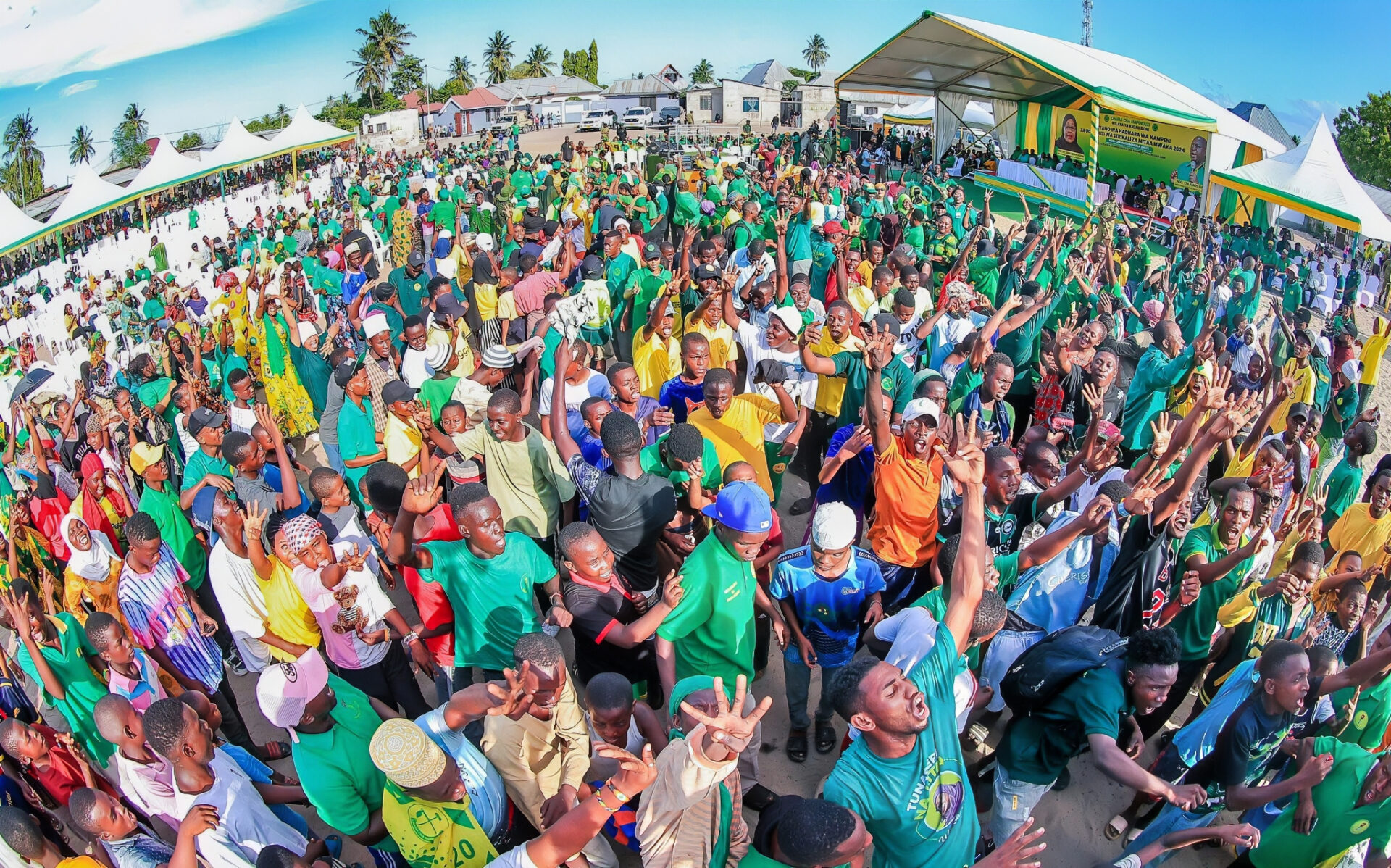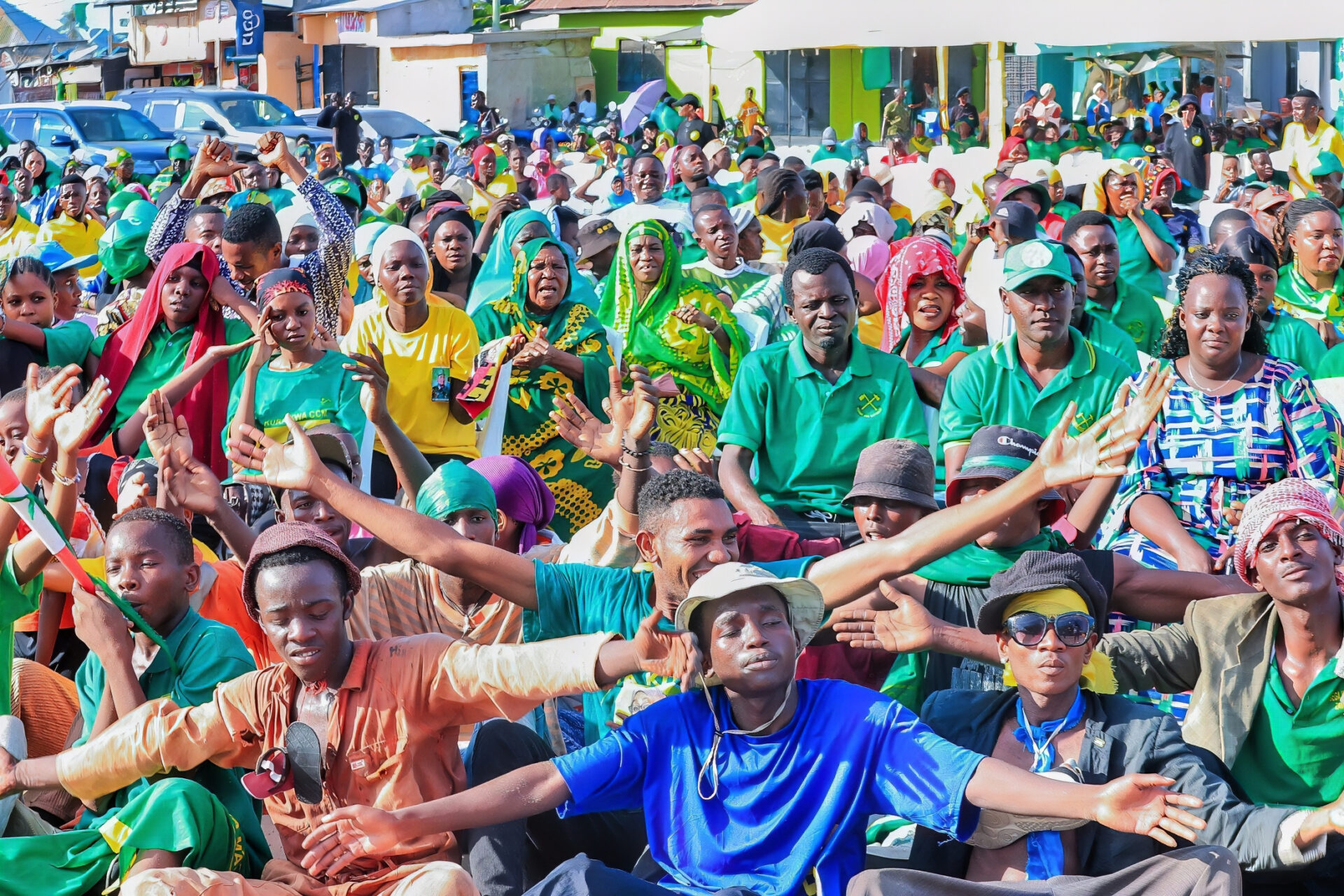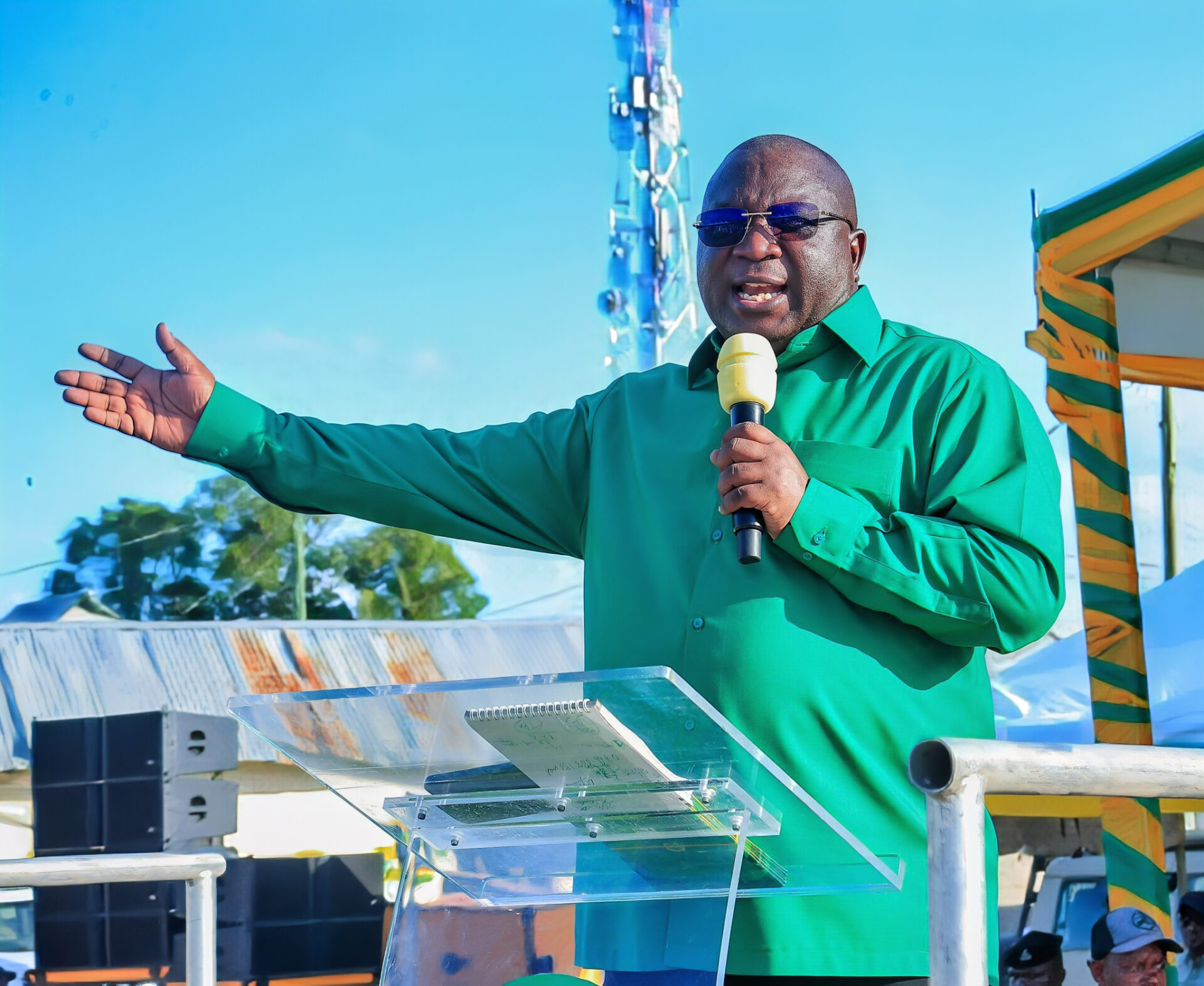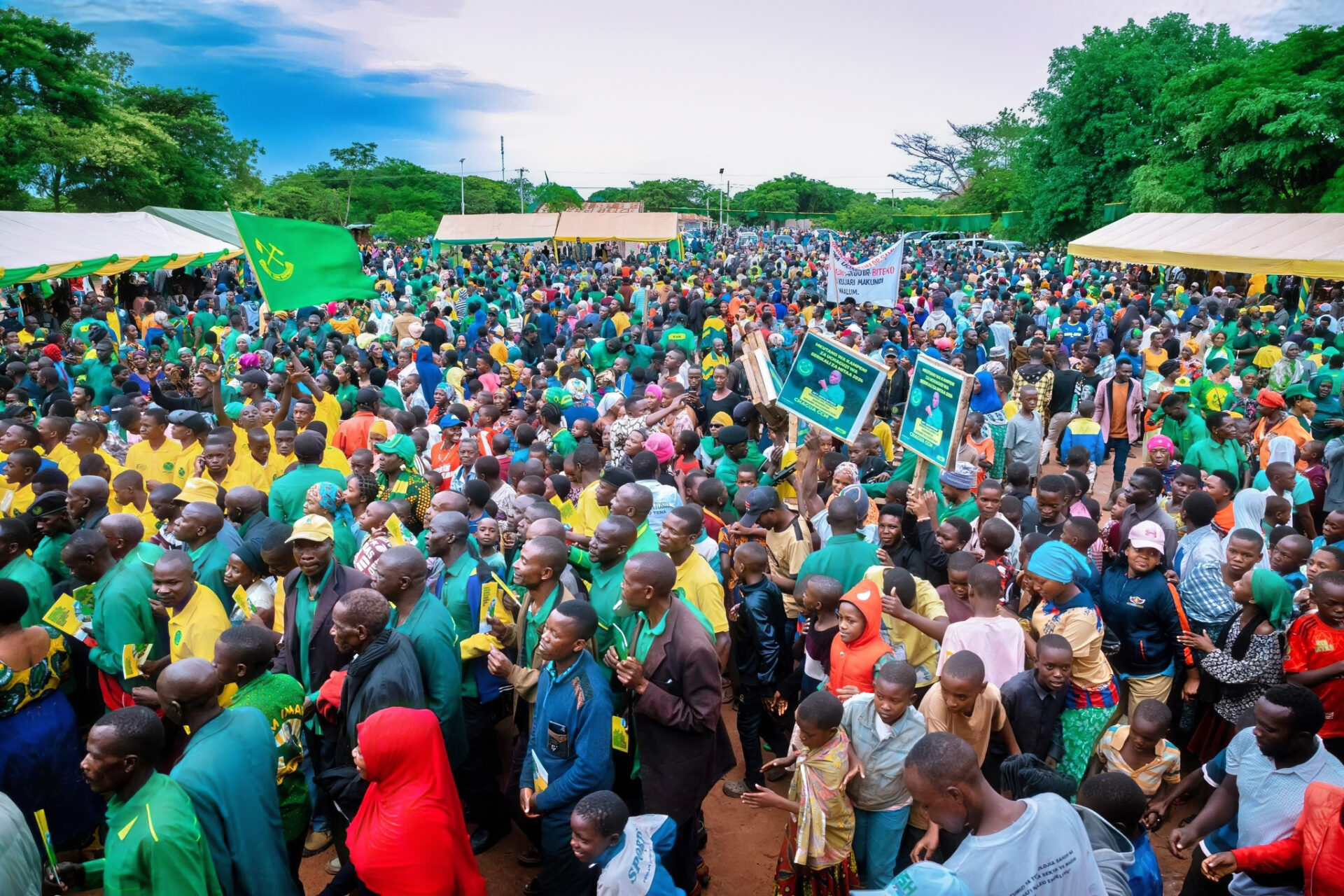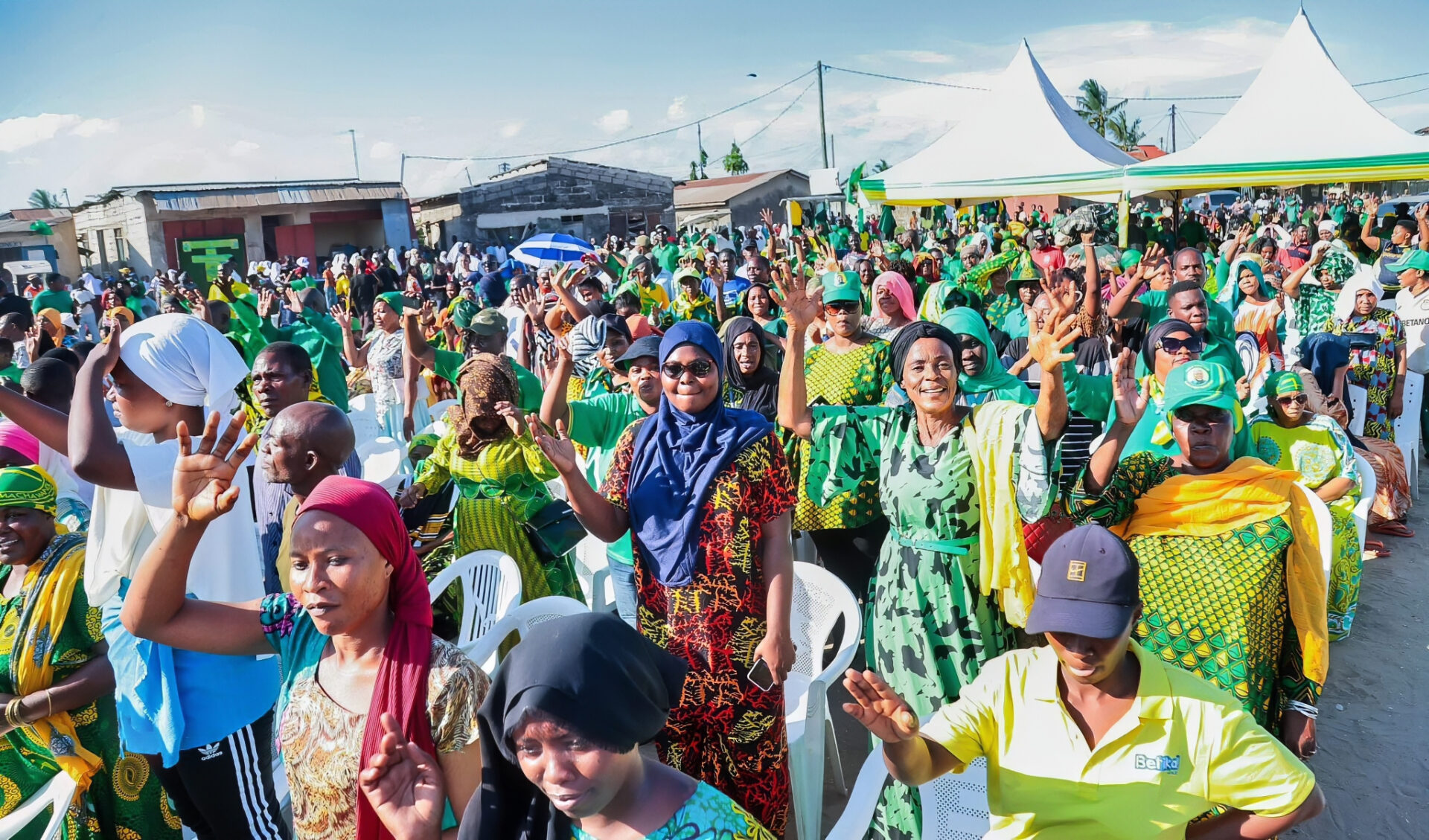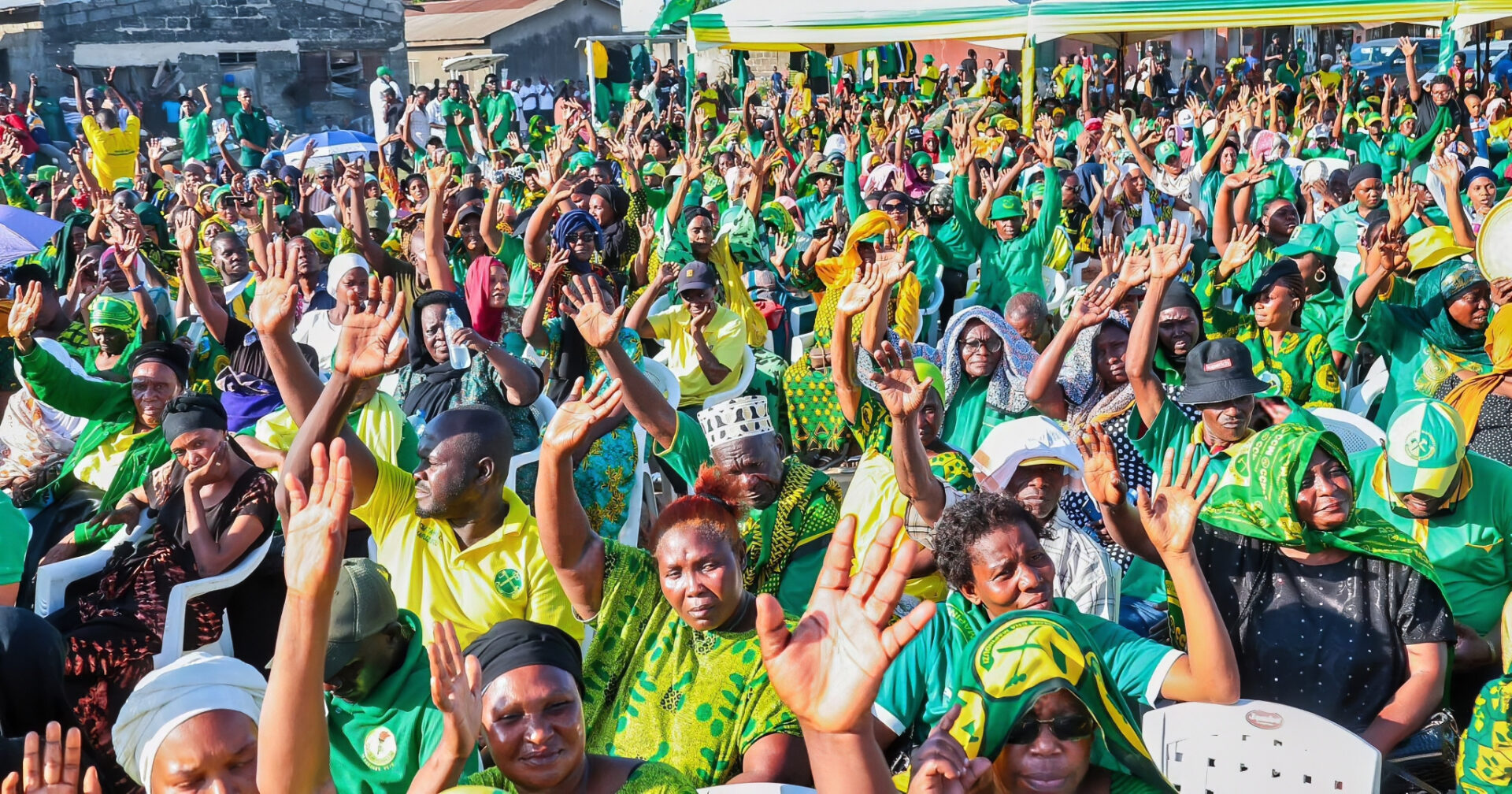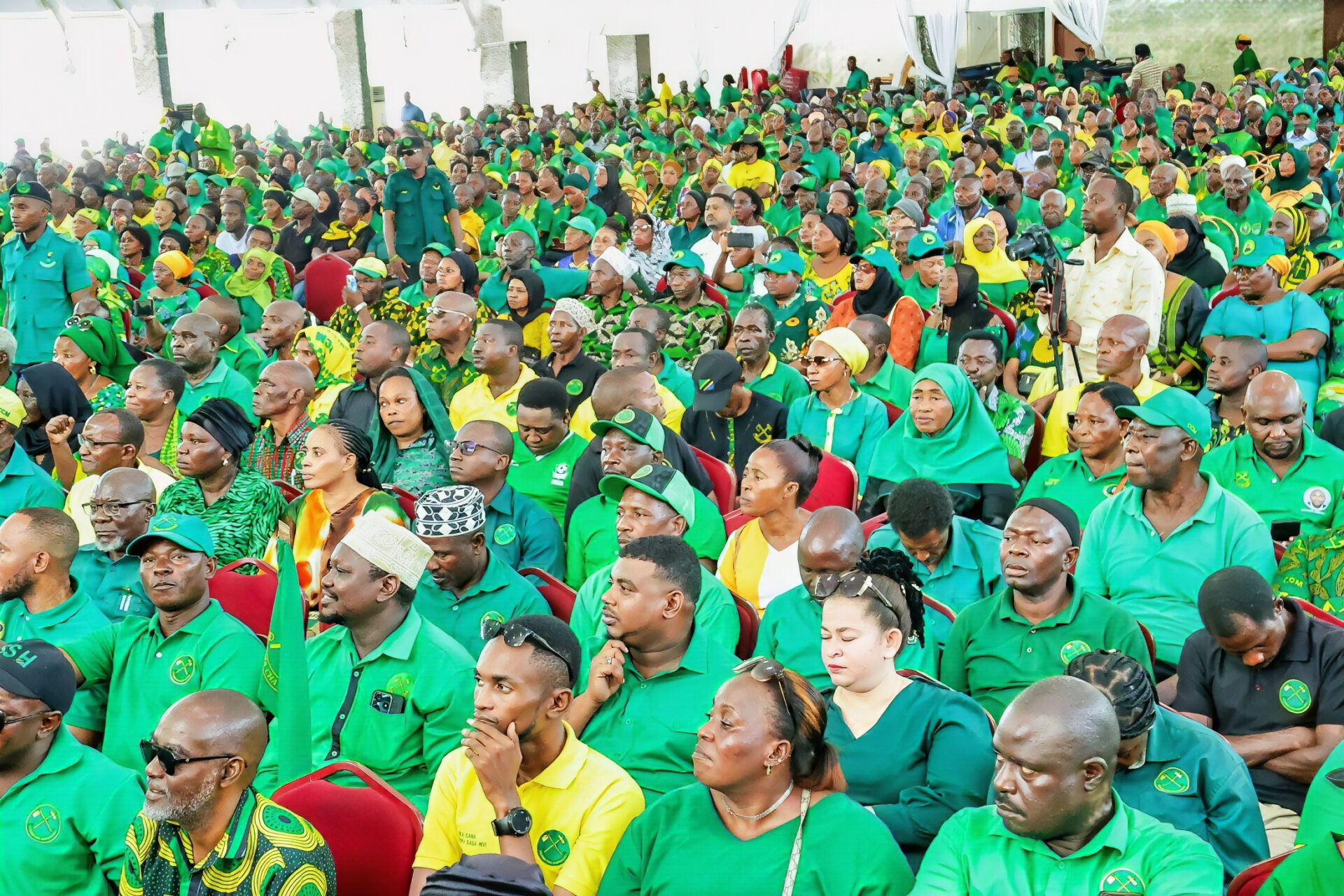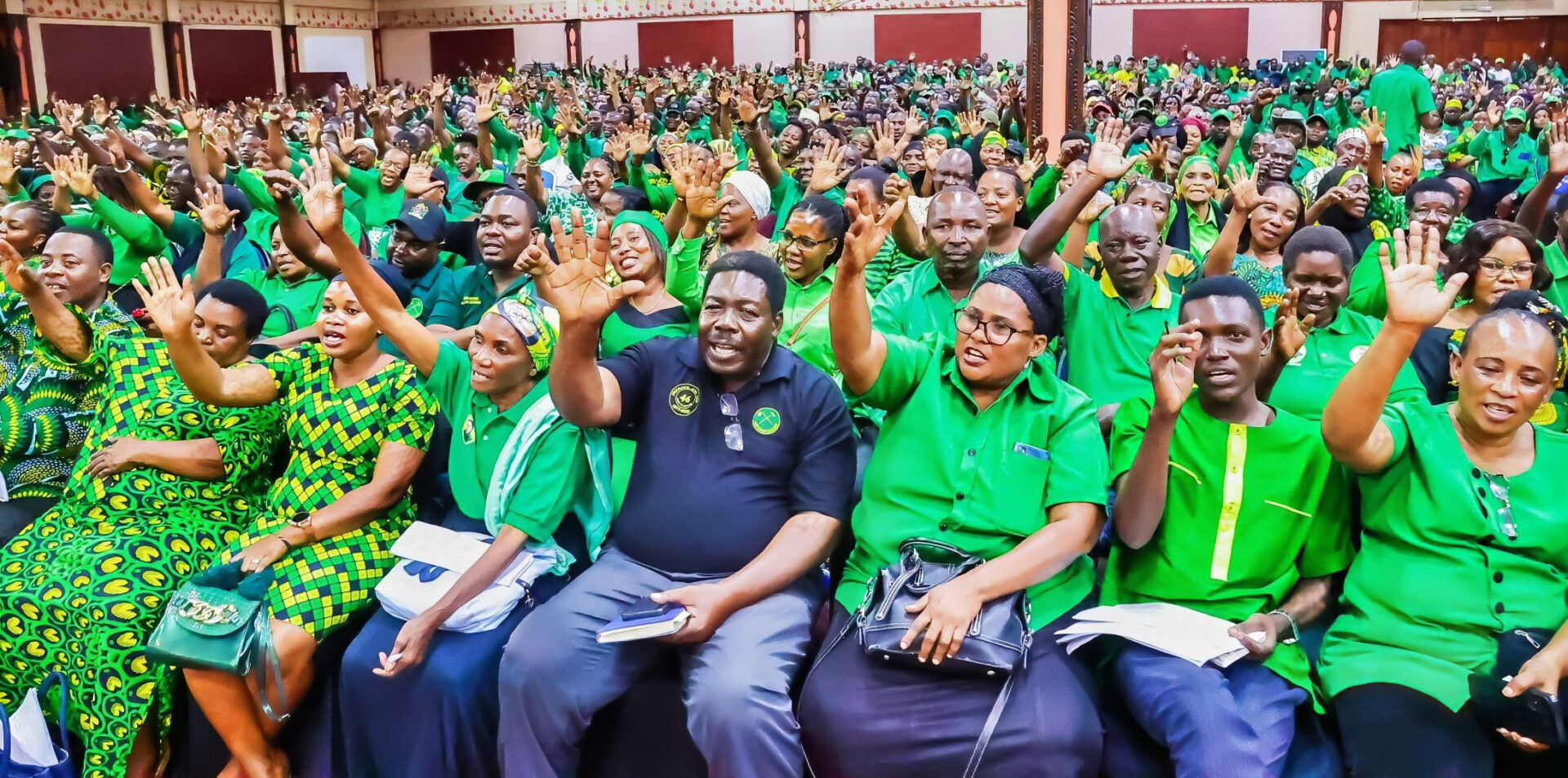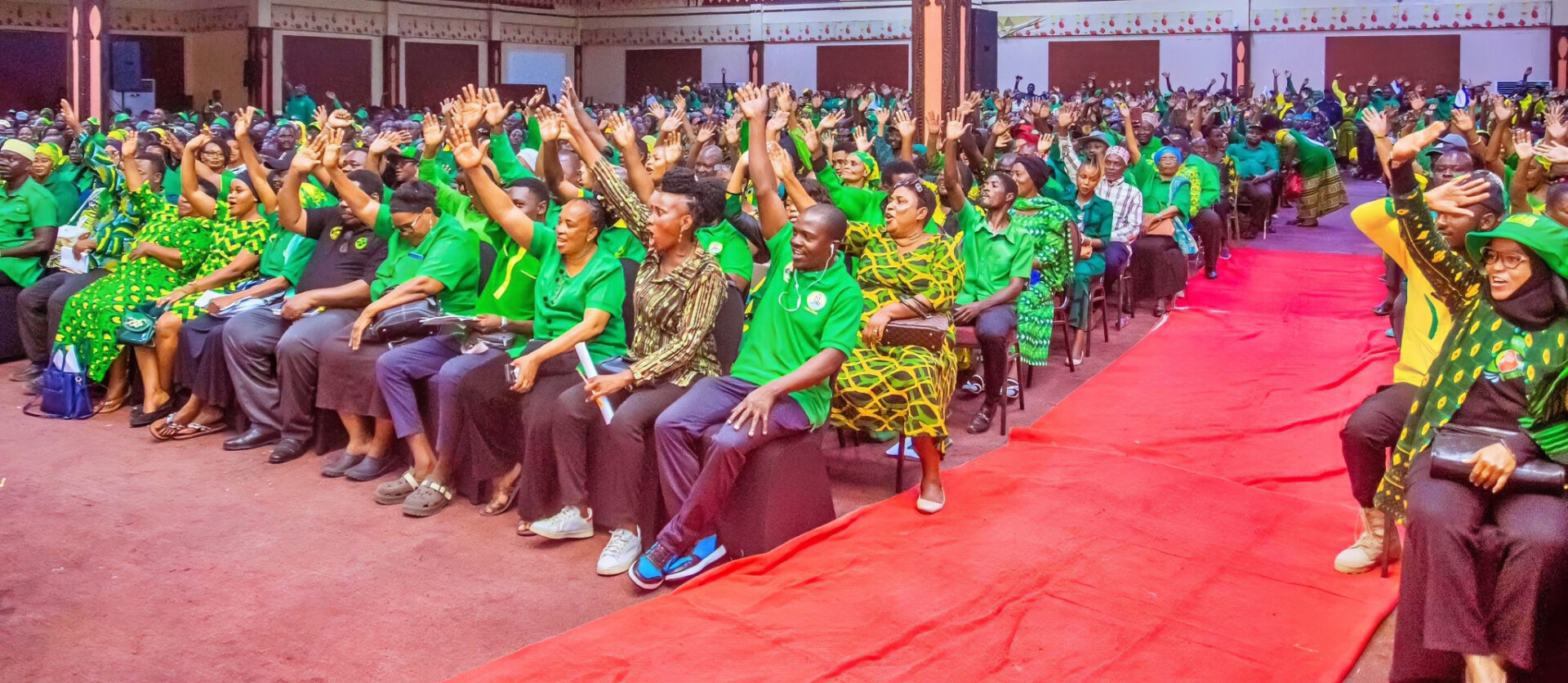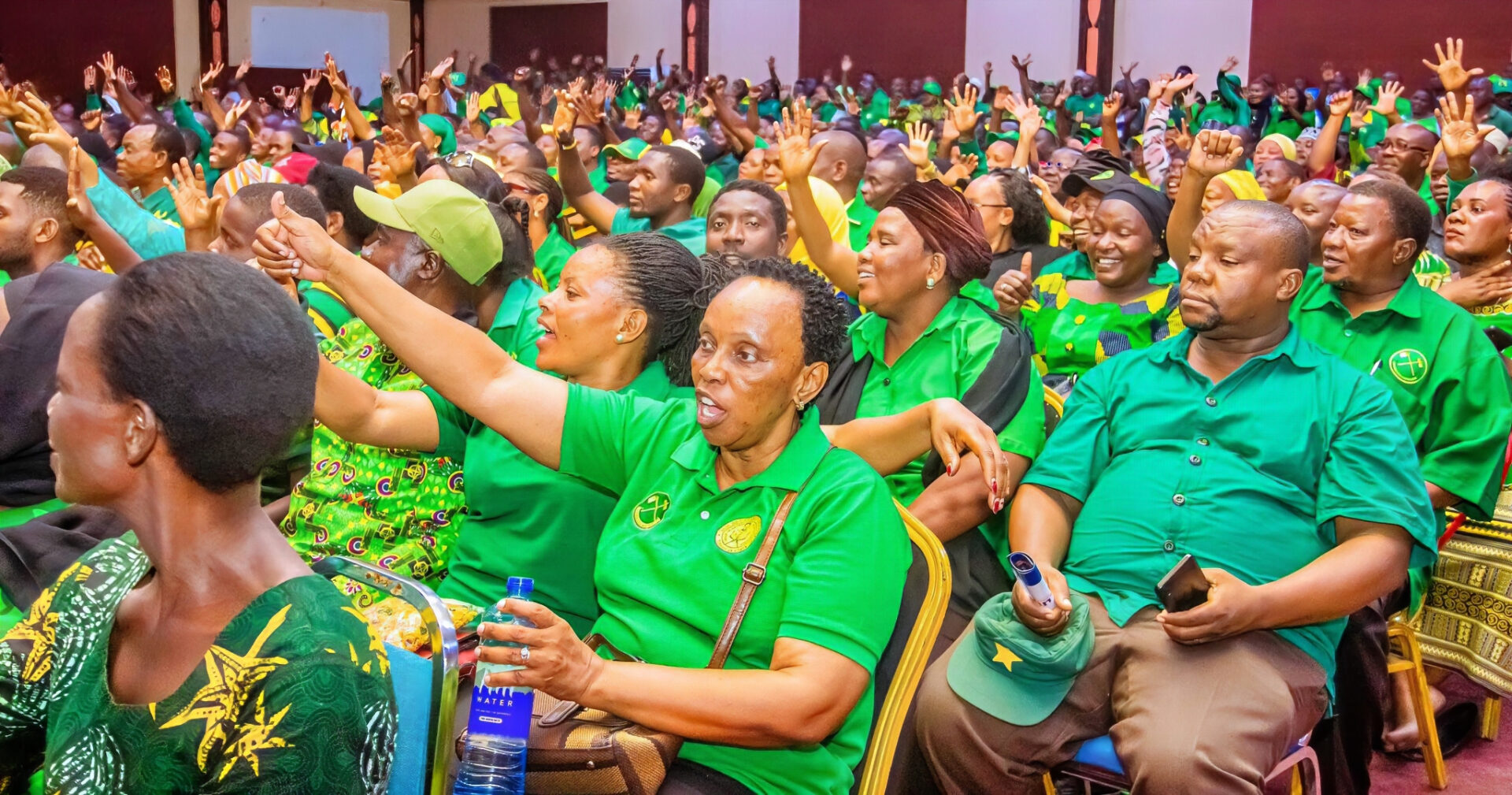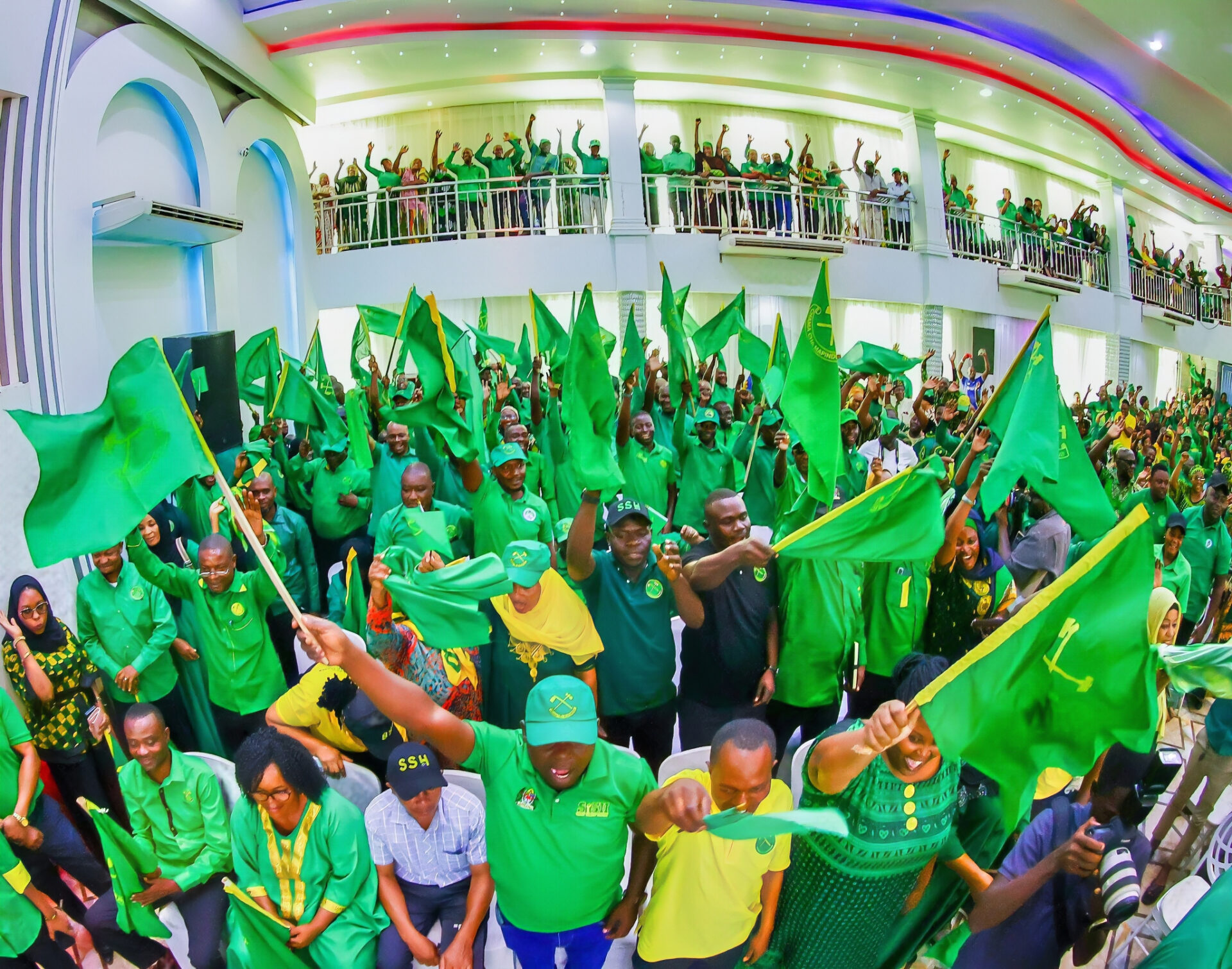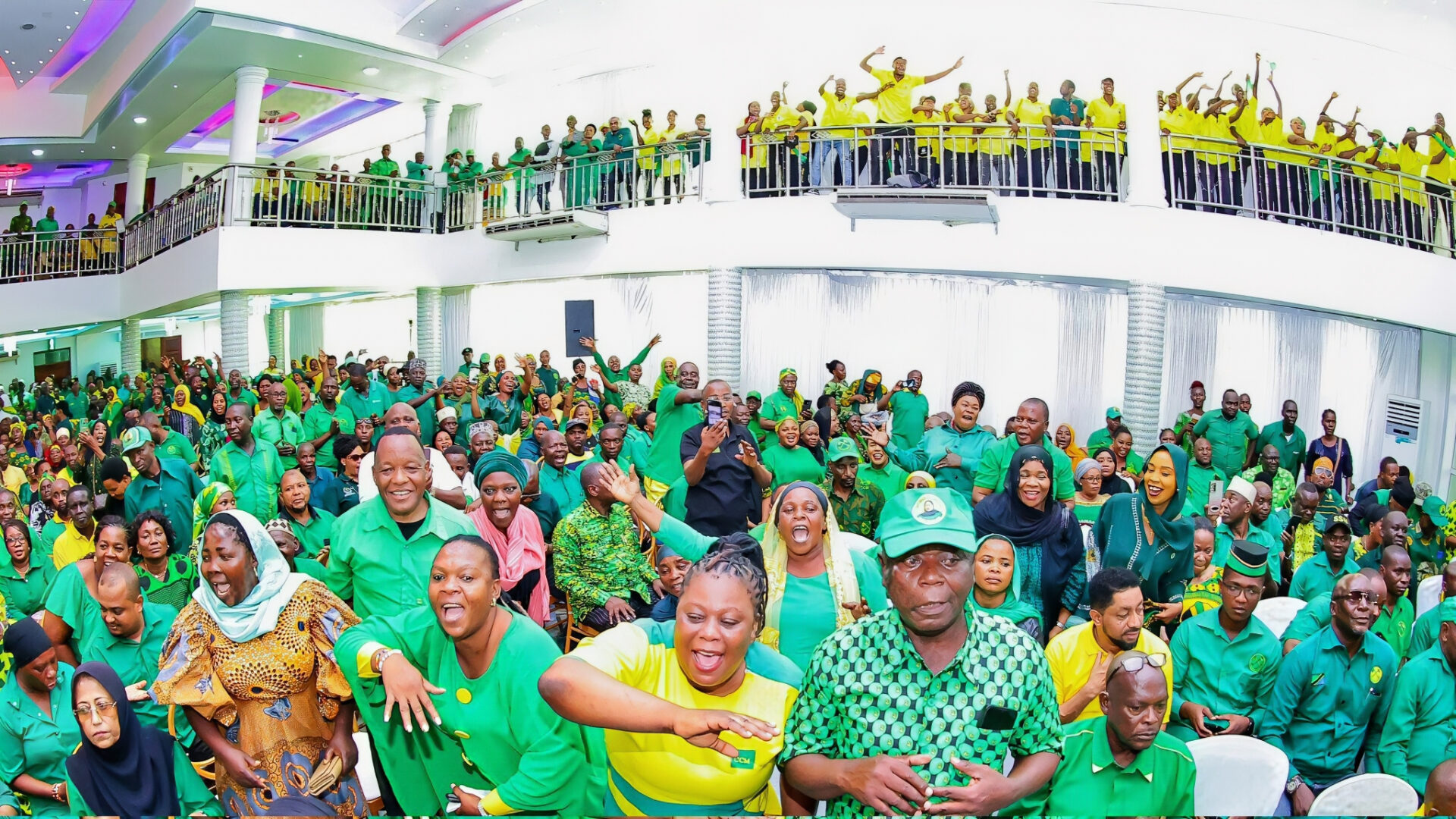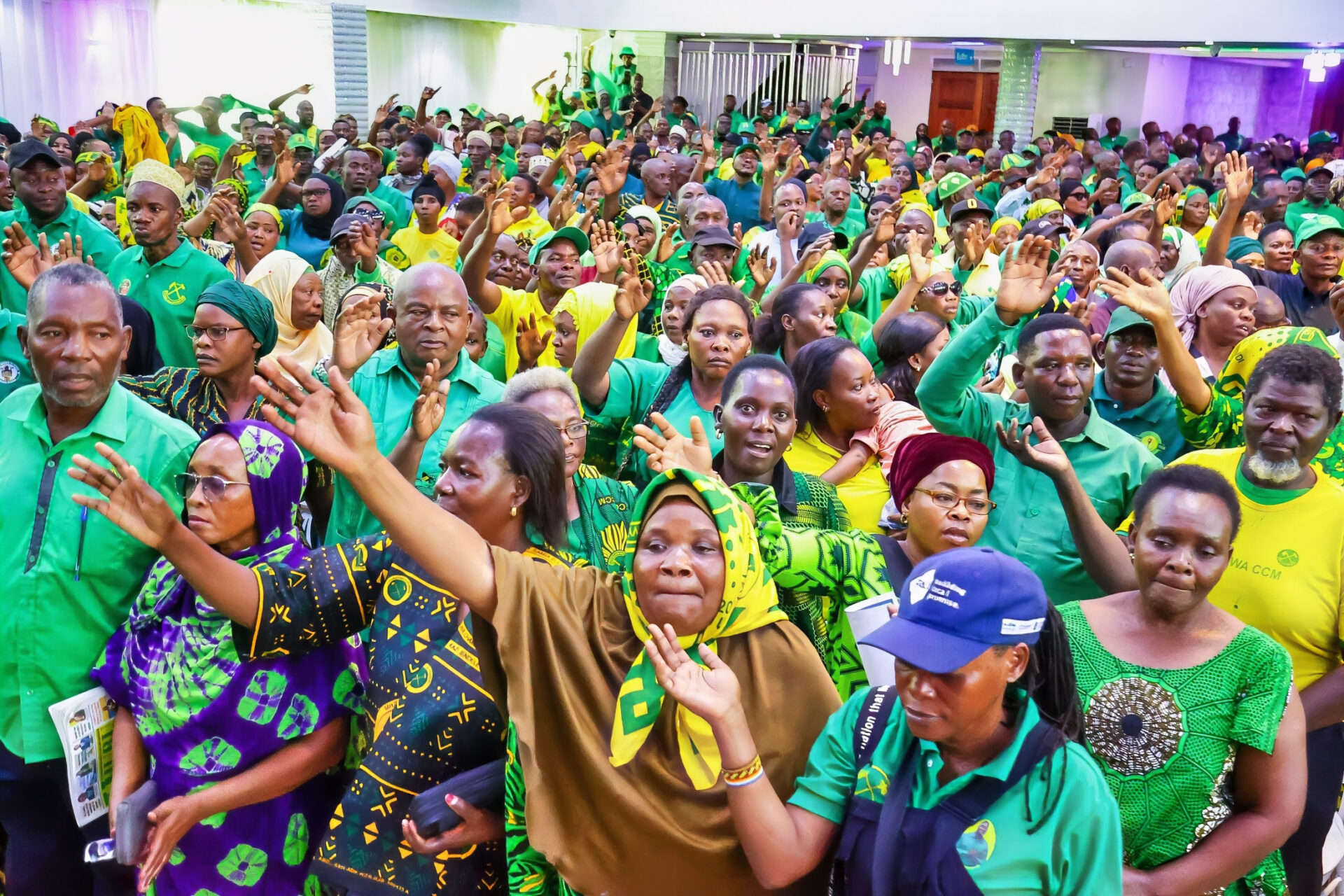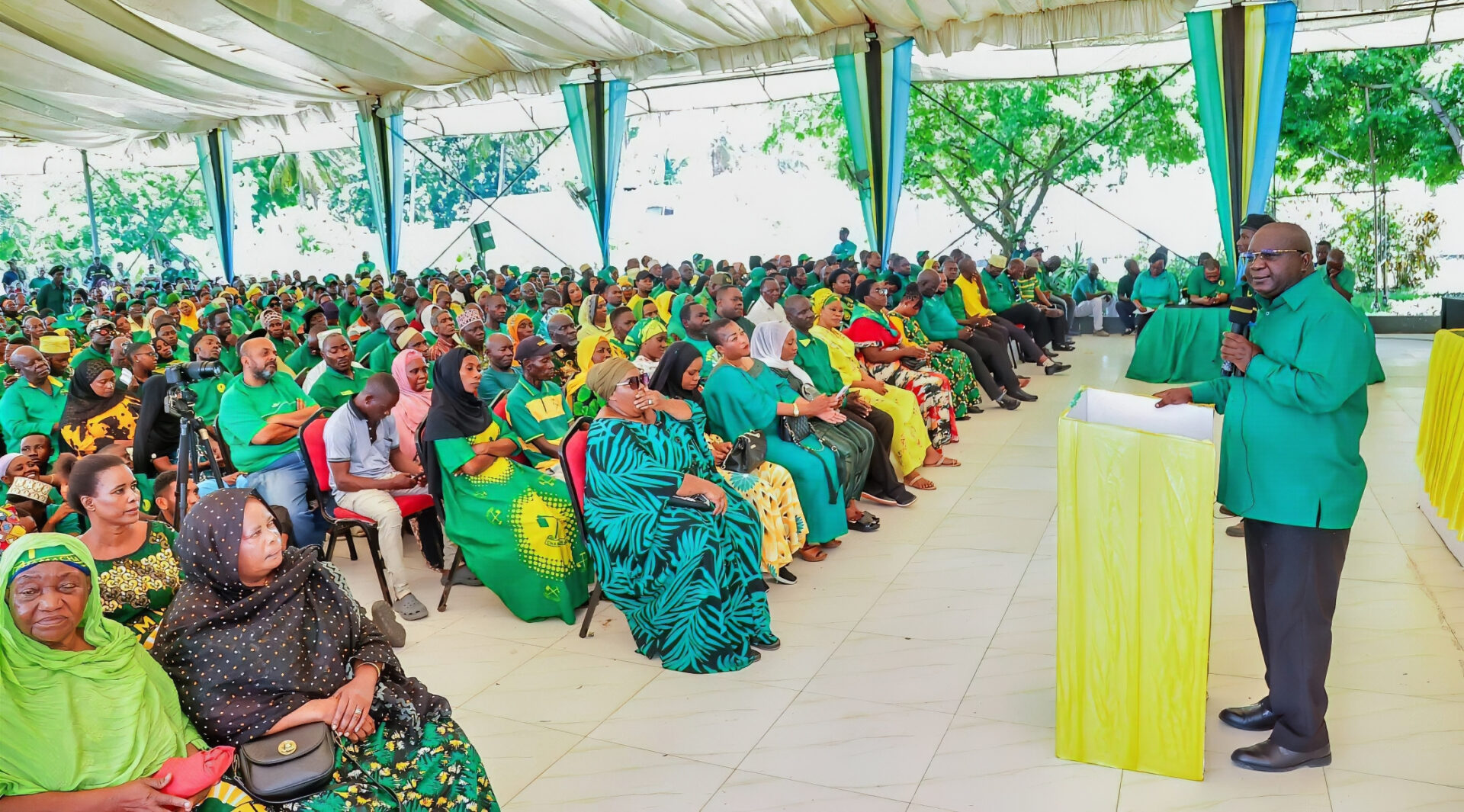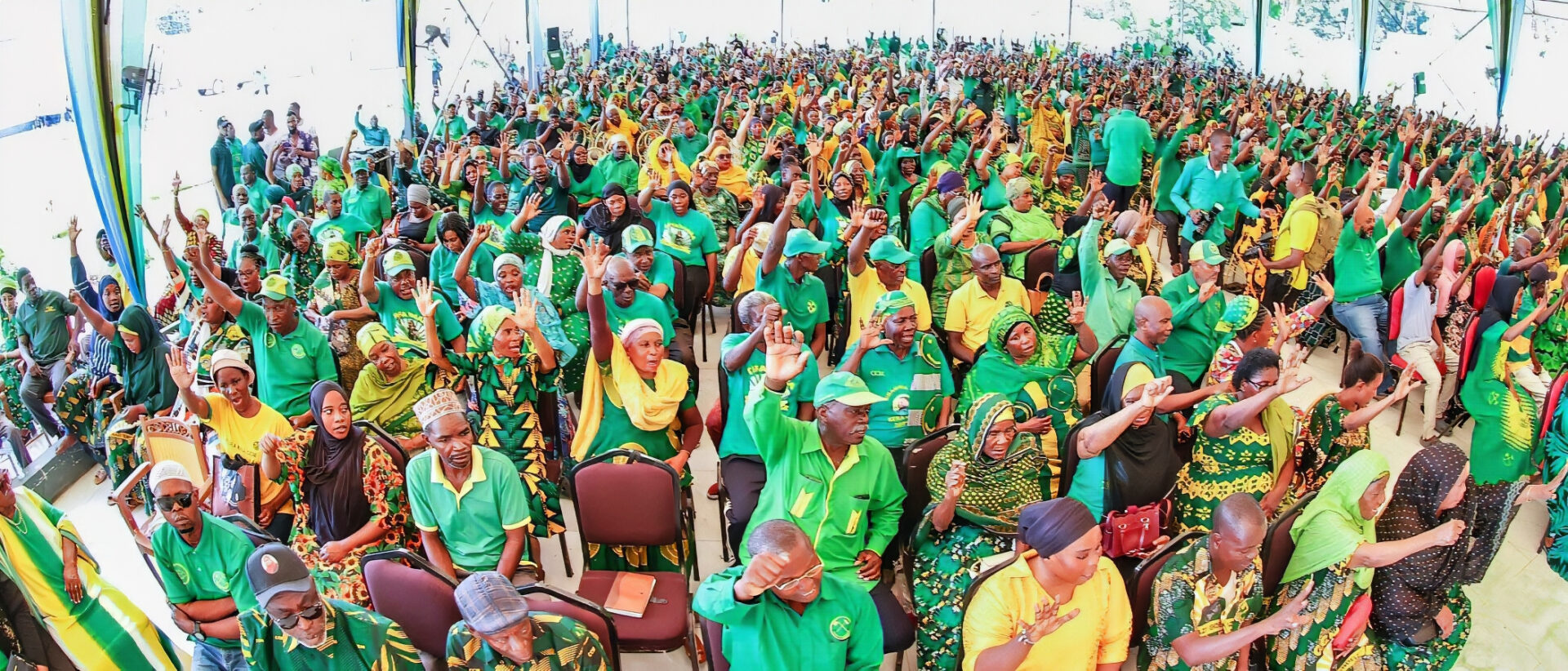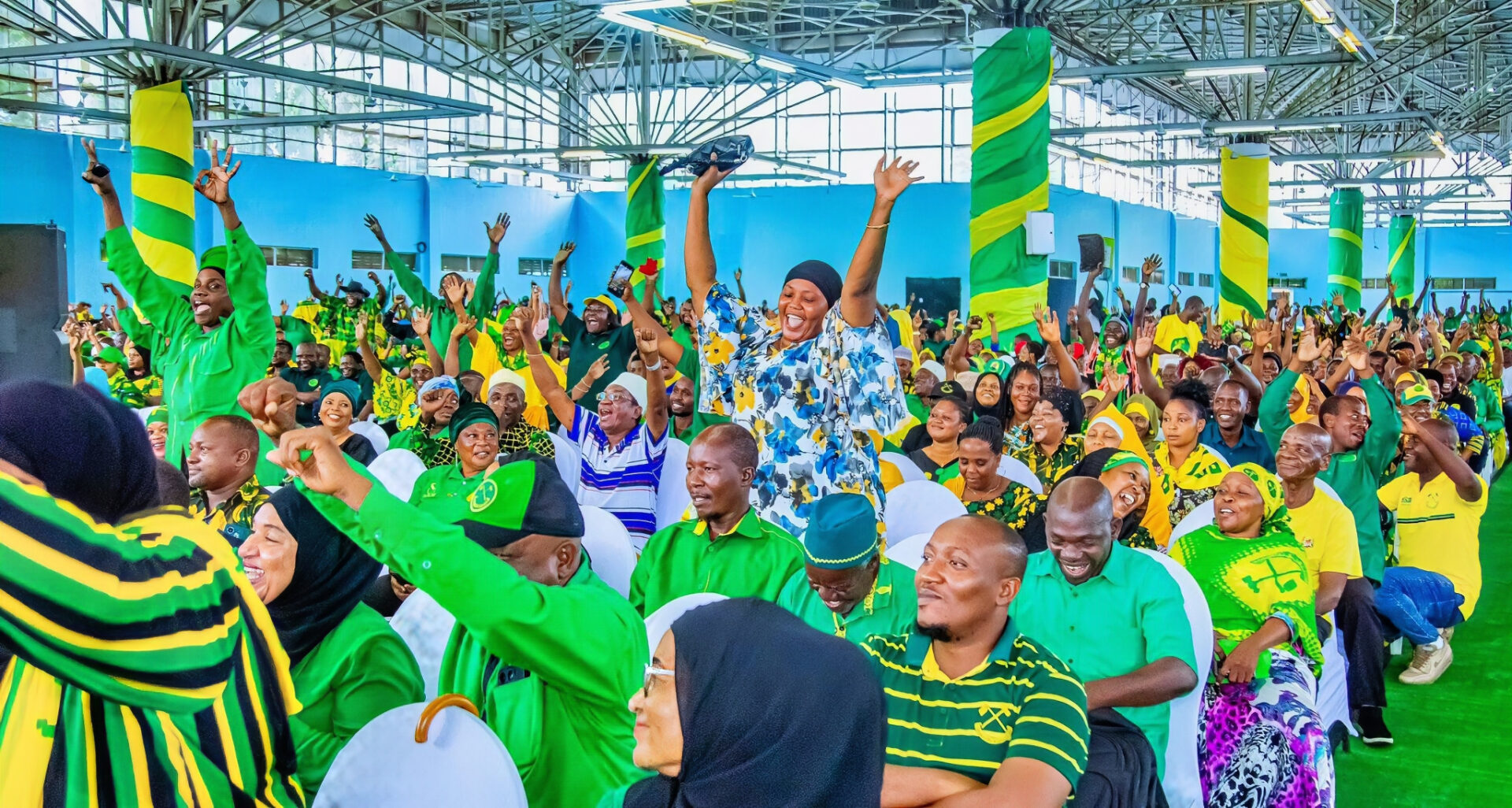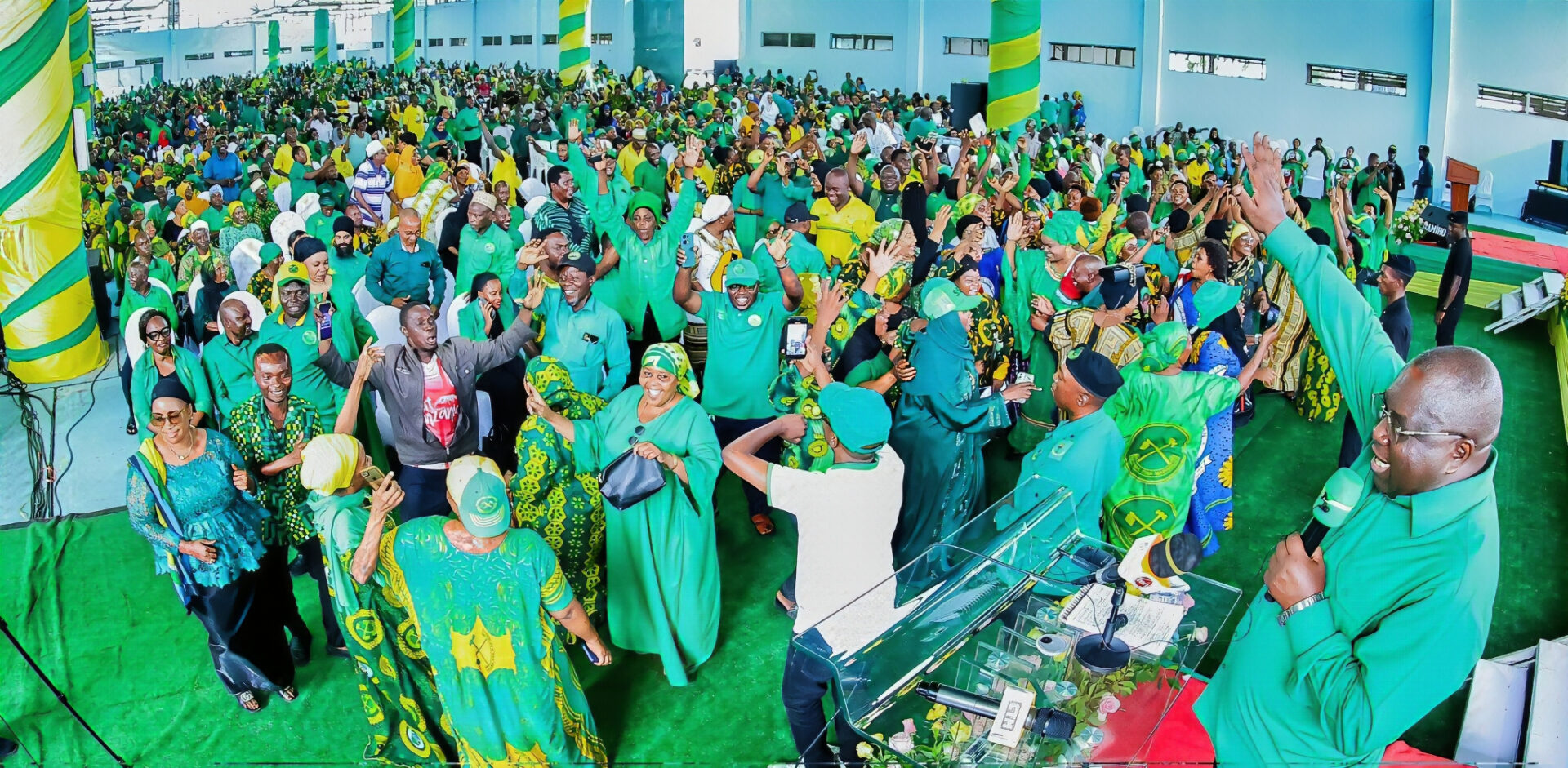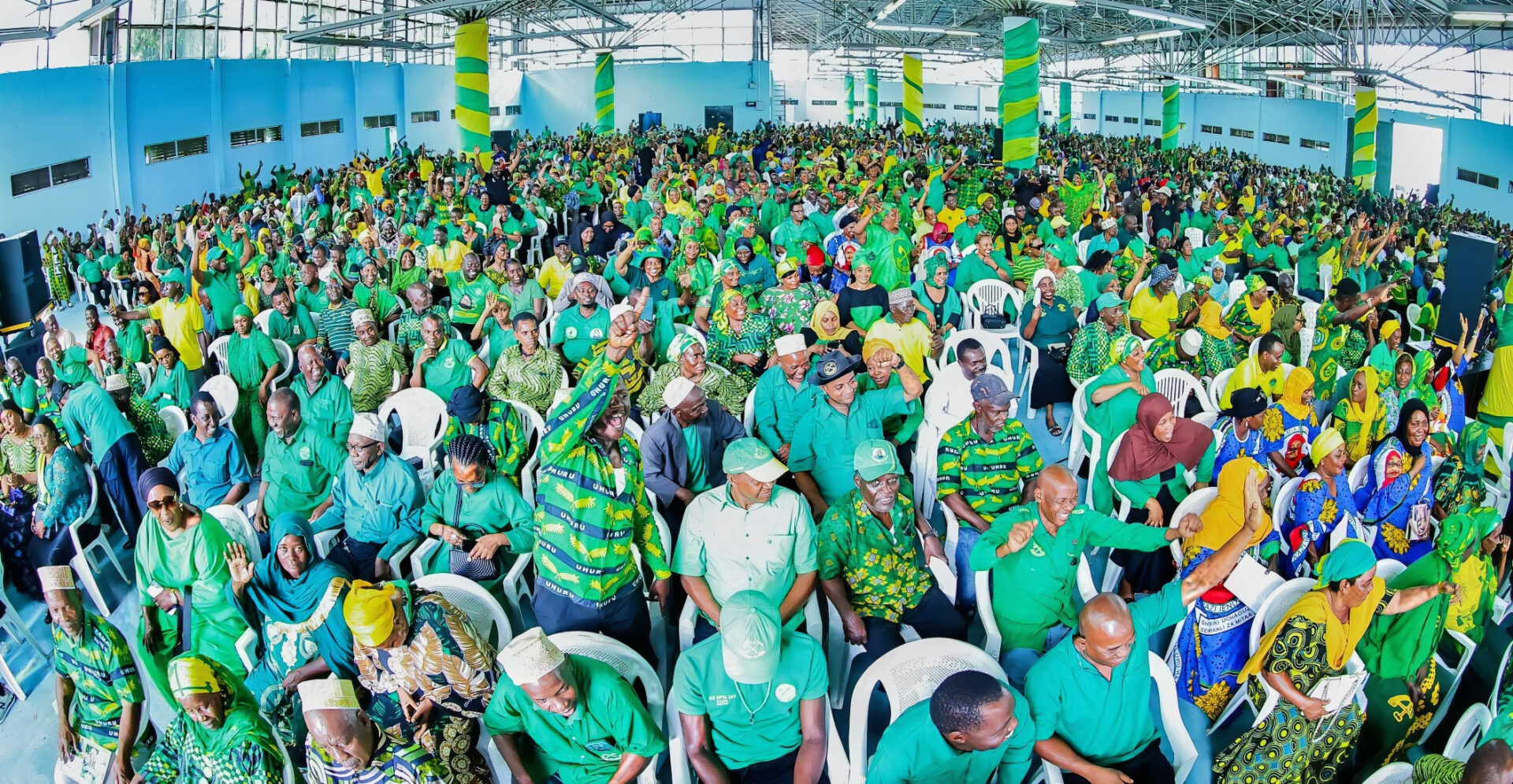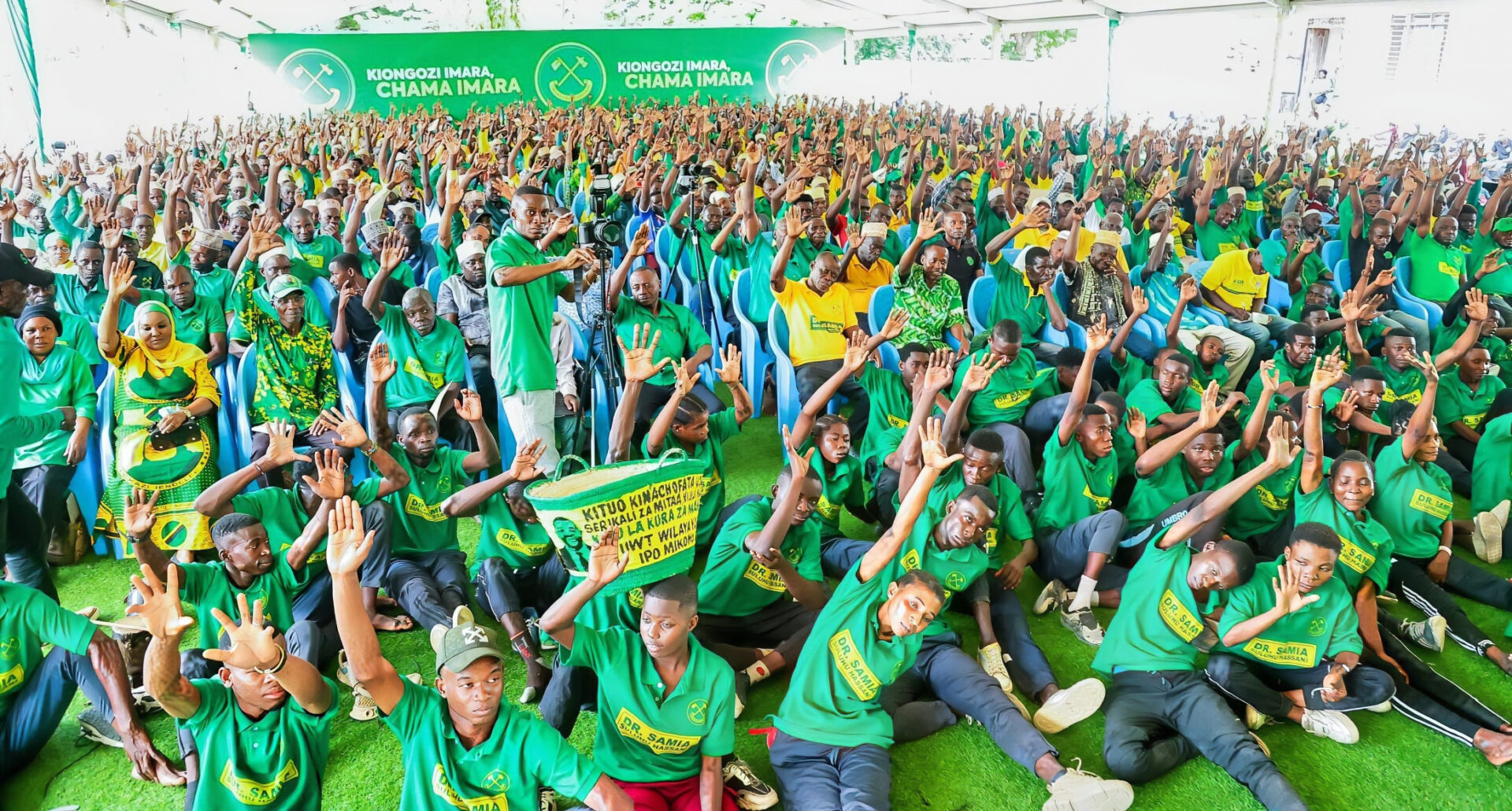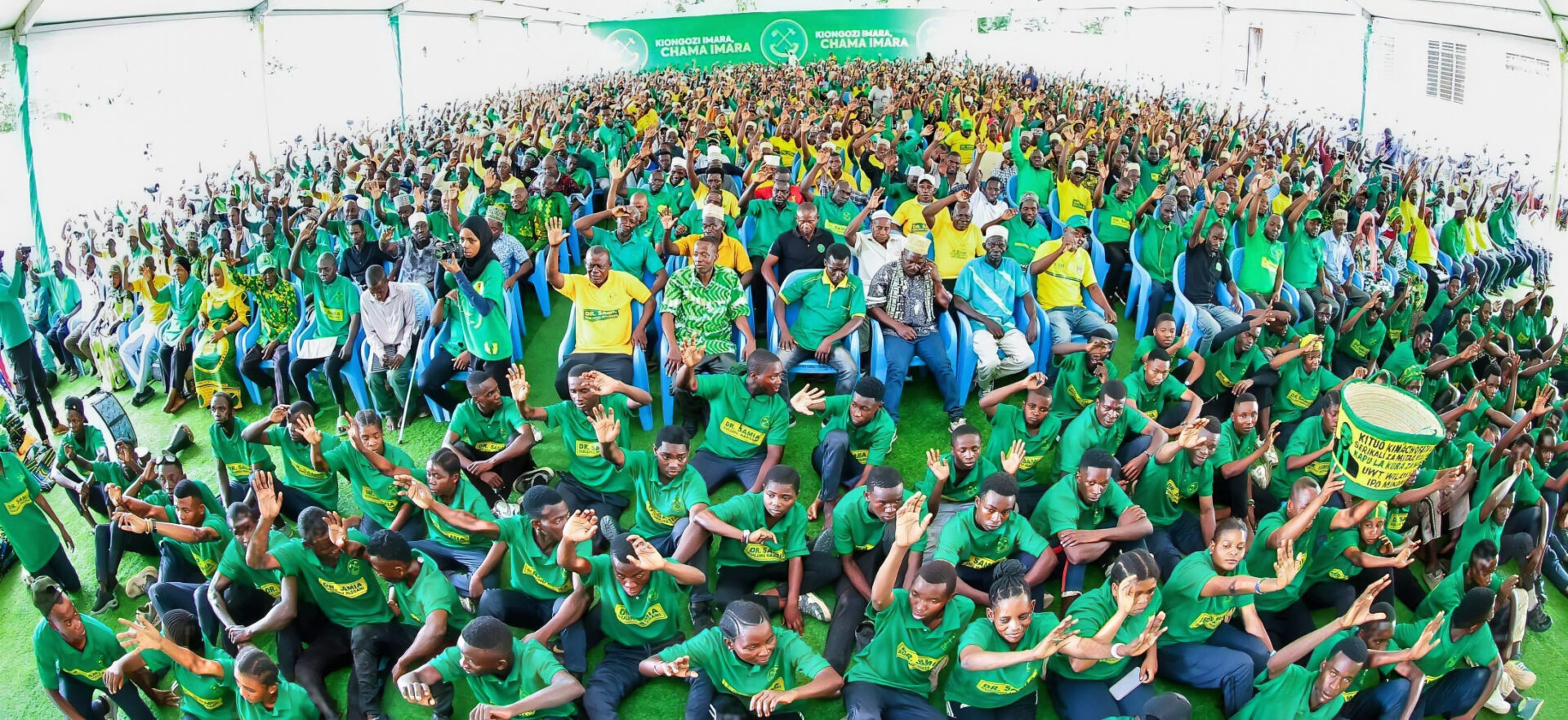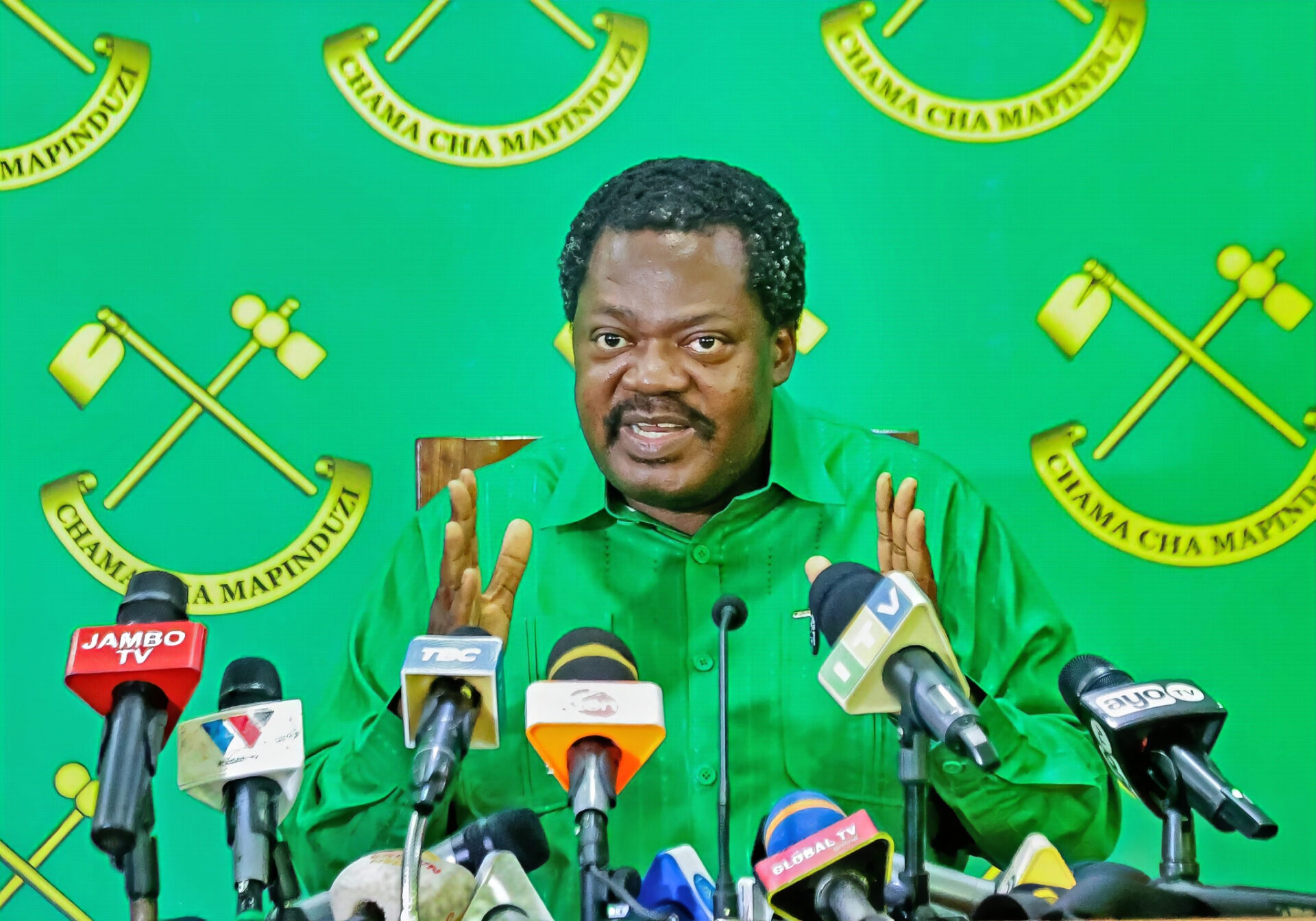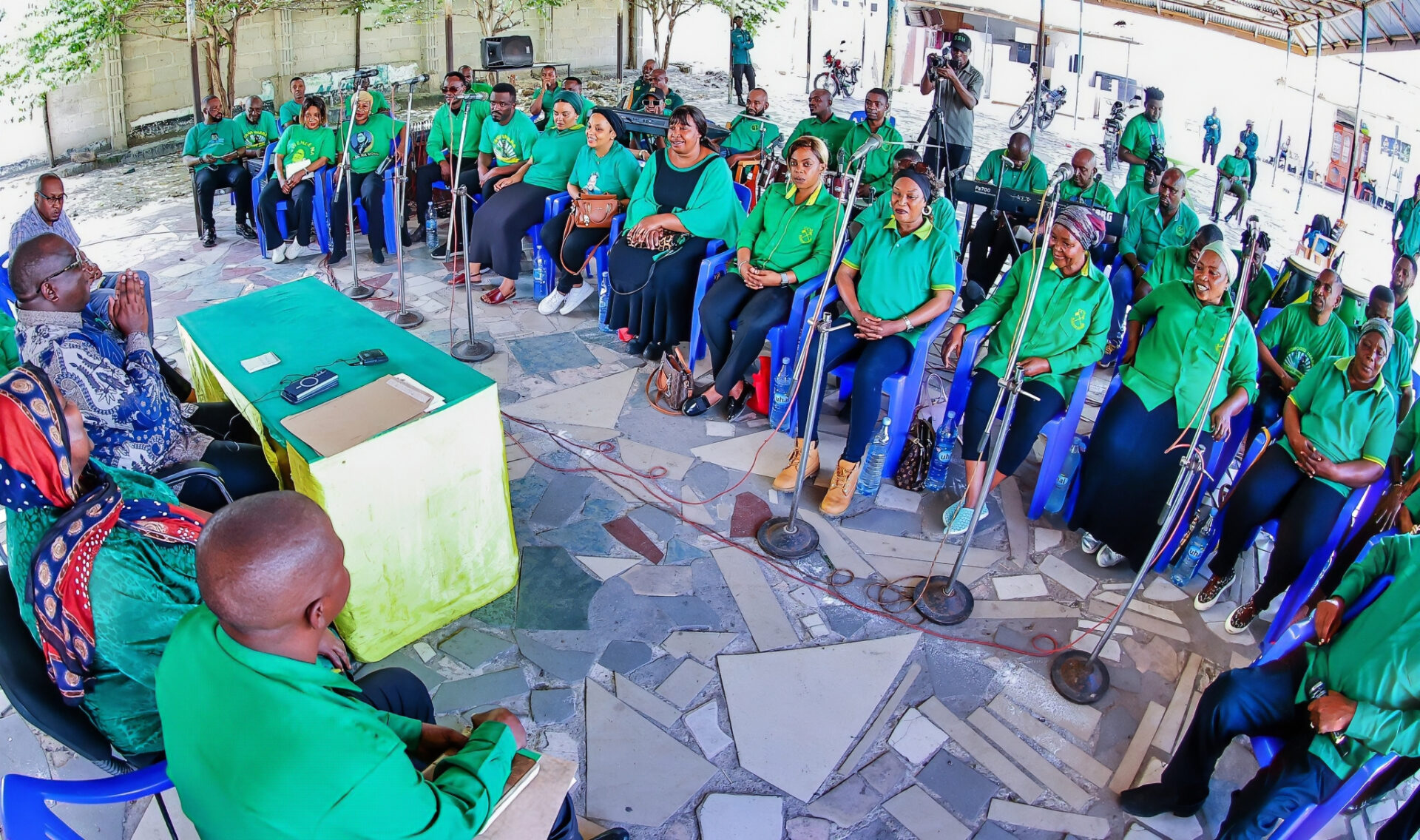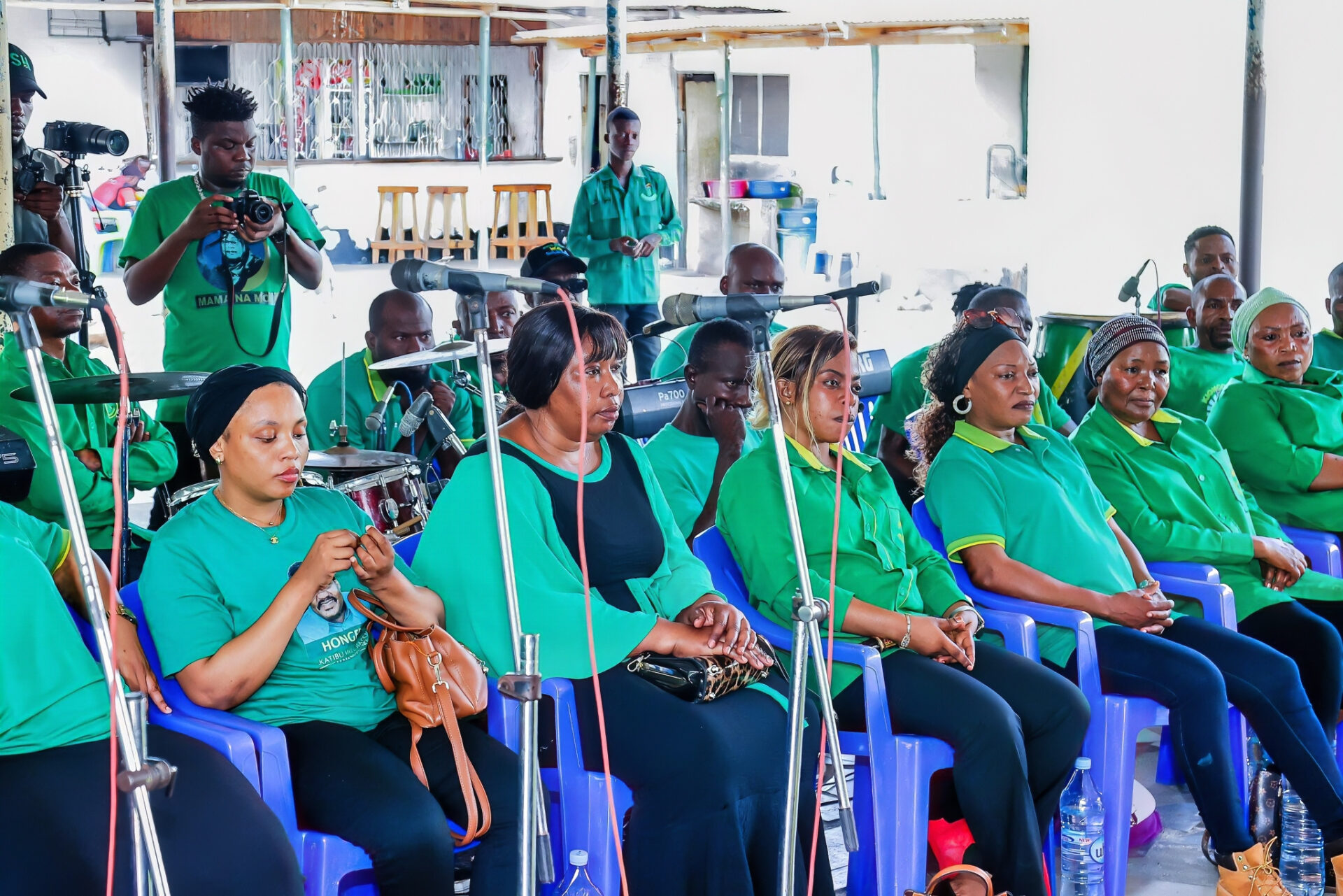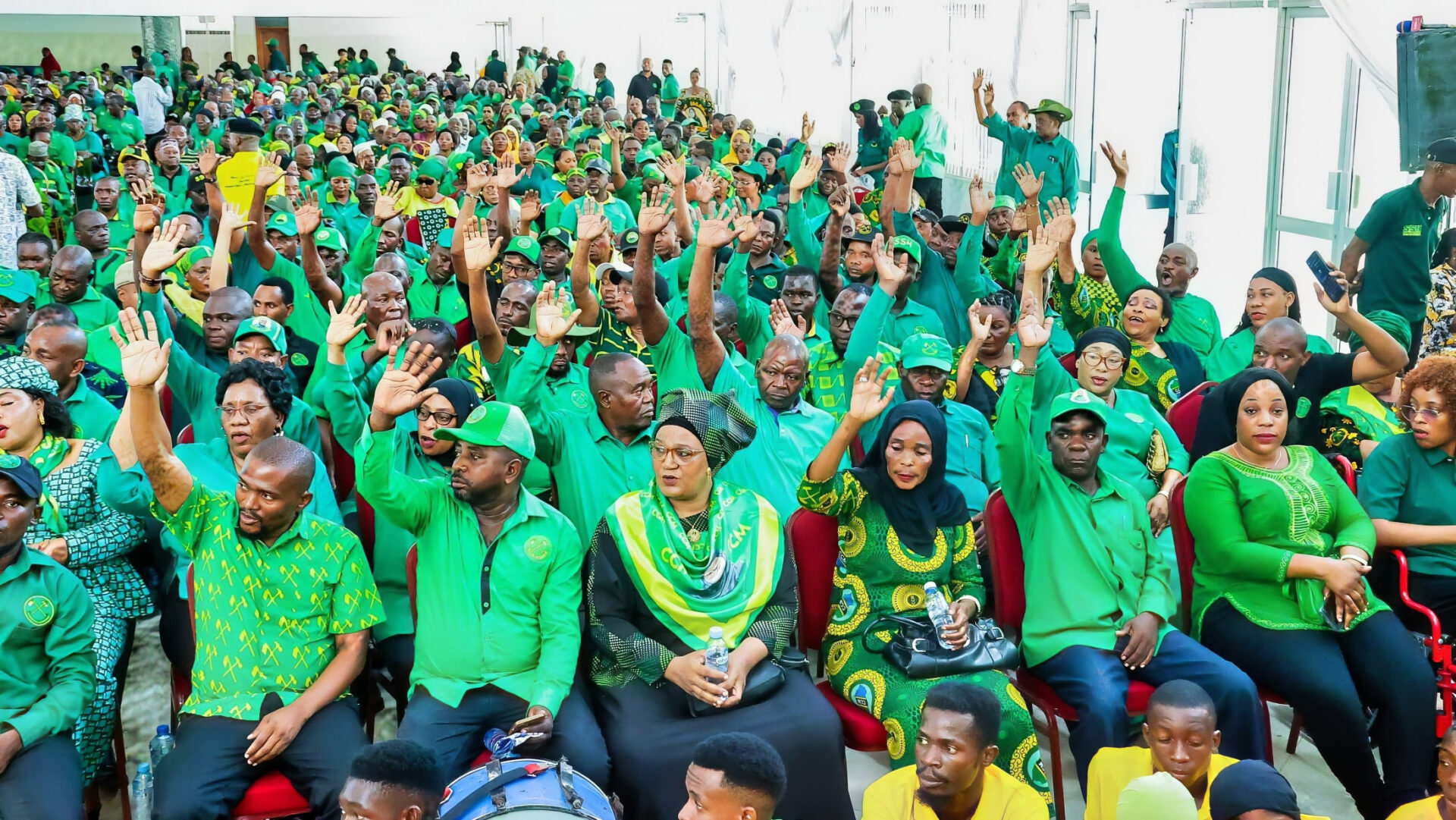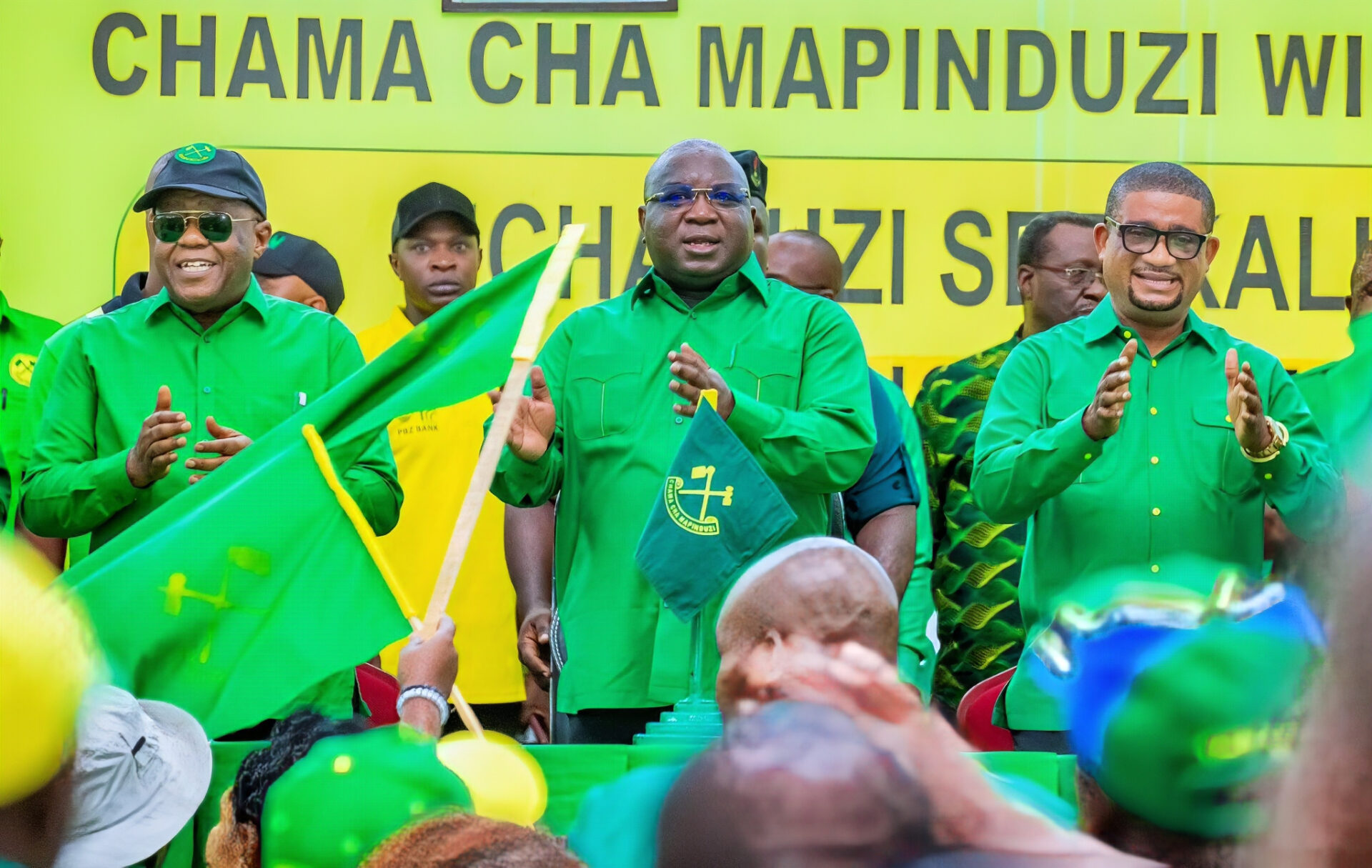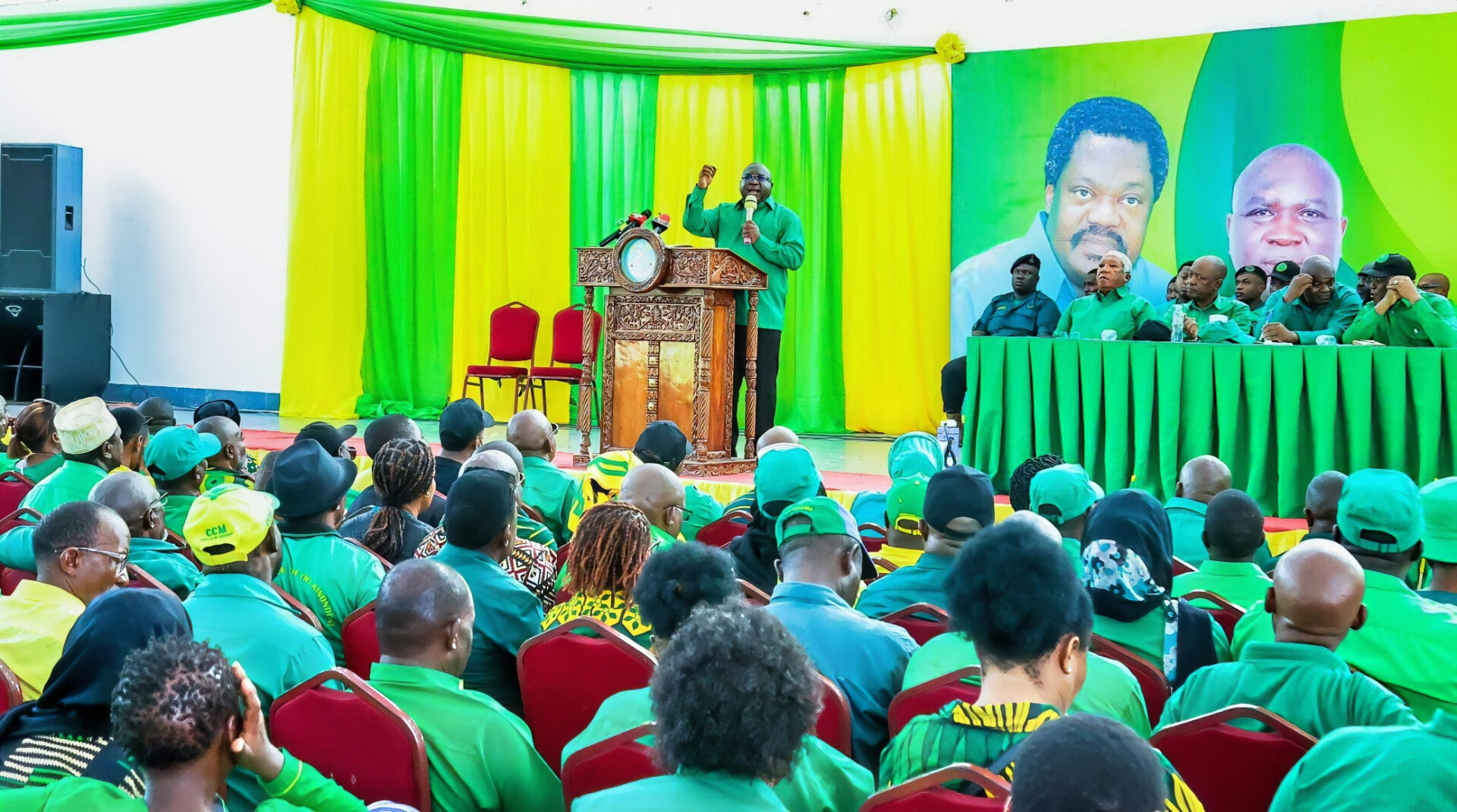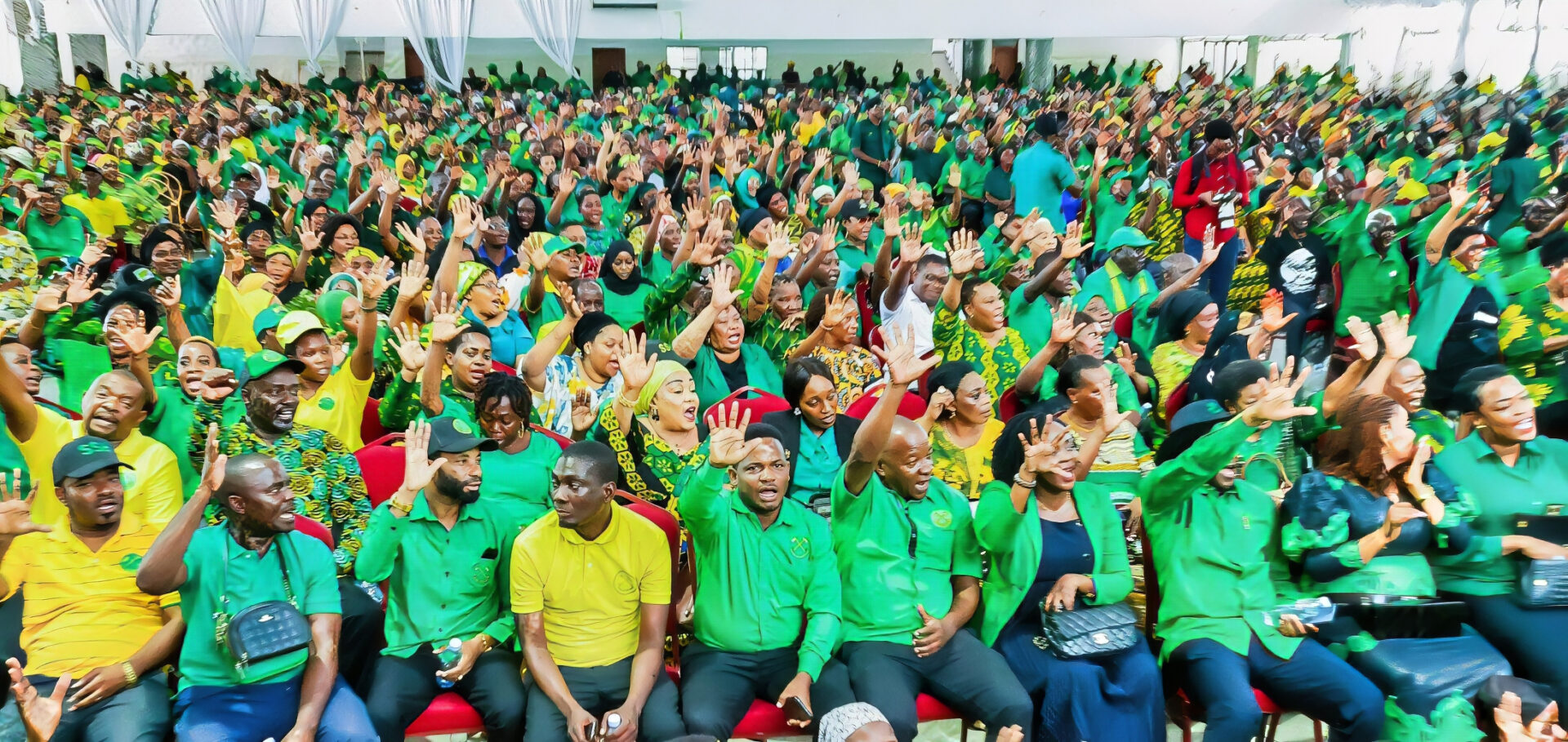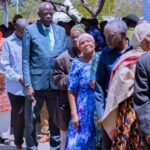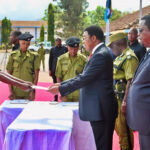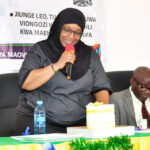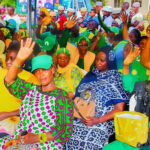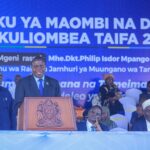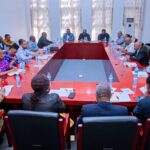Addressing Lack of Trust in Tanzania Opposition Candidates
Amos Makalla, Secretary for Ideology, Publicity, and Training of the CCM National Executive Committee (NEC), has encouraged citizens to vote for CCM candidates in the forthcoming local government elections. He has also drawn attention to the unreliability and mutual distrust among opposition parties.
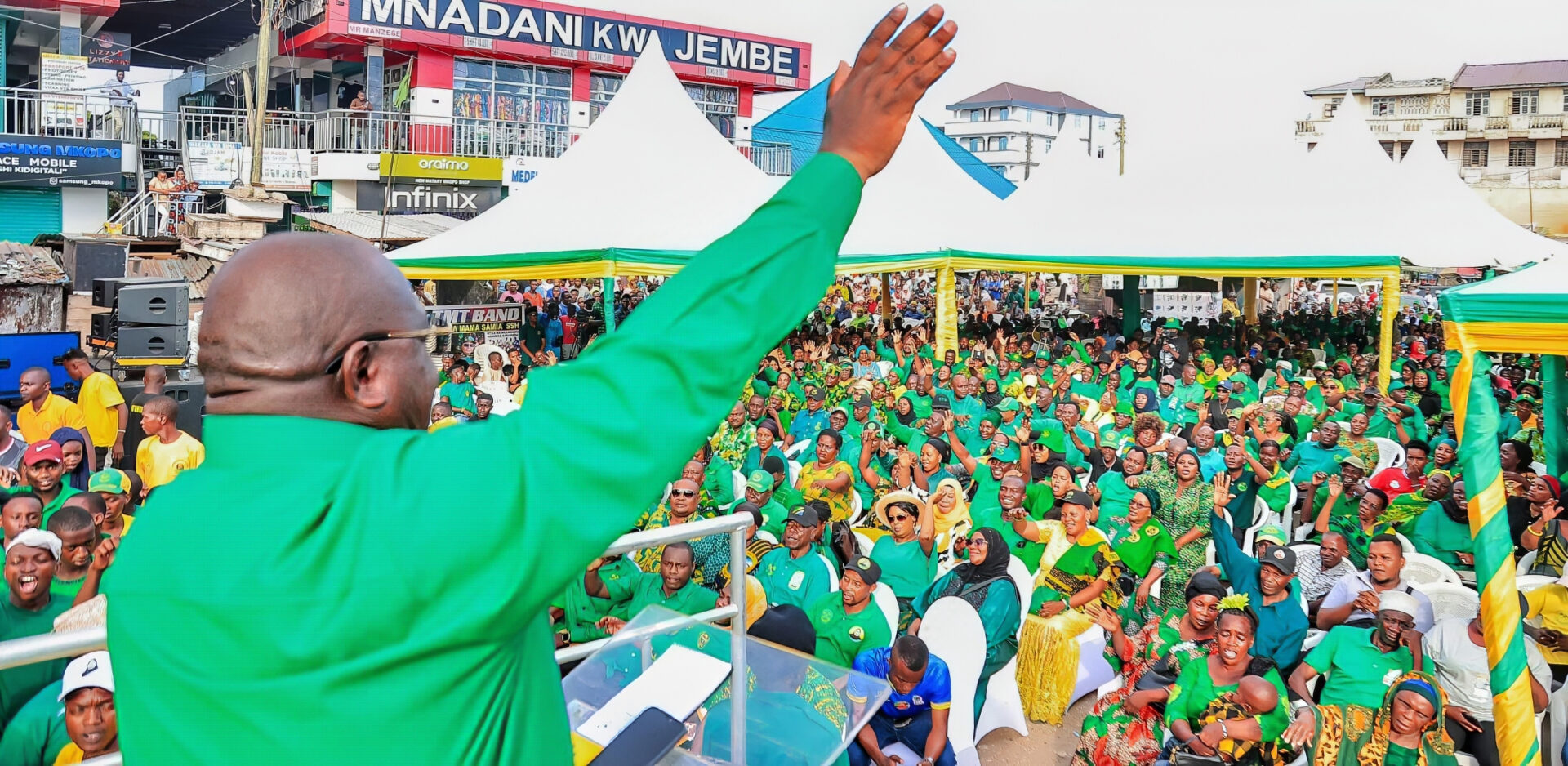
During a campaign meeting in Manzese Ward, Makalla highlighted the lack of integrity within opposition parties, which he argued undermines the credibility of their candidates. He questioned their ability to lead local governments, villages, or sub-districts, given their track record of expelling members of parliament from their parties.
Addressing Lack of Trust in Opposition Candidates
Amos Makalla’s remarks represent a component of a broader strategy pursued by the Chama Cha Mapinduzi (CCM) with the objective of consolidating its position and addressing the perceived shortcomings of its political opponents. As the Secretary for Ideology, Publicity, and Training within the CCM National Executive Committee (NEC), Makalla plays a pivotal role in influencing the party’s ideological trajectory and public discourse. This position, which he assumed following a series of strategic appointments within the party, serves to illustrate the significance of his statements in the ongoing political discourse in Tanzania.

Makalla’s role is not merely to advance the party’s ideology; it also entails ensuring that the public views the CCM as a dependable and credible political entity. His criticisms of the opposition parties’ reliability and mutual trust are designed to reinforce the CCM’s image as a stable and cohesive party capable of effective governance. This strategy is of particular importance in the context of Tanzania’s political landscape, where public perception can exert a significant influence on electoral outcomes. By drawing attention to the internal conflicts within the opposition and questioning their capacity to lead, Makalla aims to position the CCM as a more competent and unified alternative for voters. This approach forms part of a broader effort to consolidate the party’s power and maintain its dominance in Tanzanian politics.
Opposition Parties’ Unreliability: A Cause for Concern
Makalla’s critique of the opposition is not limited to their lack of stability and unity; it also encompasses the questionable reputation of opposition MPs who have received government subsidies despite their negative contributions. Makalla posits that such actions erode the credibility of these MPs and, by extension, the parties they represent.
This narrative constitutes a key element of Makalla’s broader critique of the opposition, which is designed to position the CCM as a more stable and reliable alternative for voters. By emphasising the perceived deficiencies of the opposition, Makalla aims to discredit their credibility and present the CCM as the sole viable option for citizens seeking effective leadership.
Makalla’s strategy is predicated on the assumption that voters attach greater importance to stability and reliability when selecting their leaders. By presenting the CCM as the more stable and reliable option, Makalla seeks to influence voters to favour it. However, it is important to note that Makalla’s critique is one-sided and does not fully consider the complexities of the political landscape.
The opposition parties in Tanzania are confronted with a multitude of challenges, including restricted resources, governmental repression and internal divisions. Notwithstanding these challenges, they continue to serve a vital function in representing the diverse voices of Tanzanian citizens.
The decision between the CCM and the opposition is ultimately at the discretion of the Tanzanian electorate. While Makalla’s critique provides a valuable insight, it is essential for voters to consider a comprehensive range of factors before making their decision.
Expulsion of Opposition MPs
The expulsion of 19 opposition MPs in 2020 constituted a significant event that brought to light the profound internal issues that beset opposition parties in Tanzania. This action demonstrated a lack of unity and cohesion within the opposition, which gave rise to concerns about their ability to effectively represent the diverse needs of citizens.
A number of factors have contributed to the instability and unreliability of opposition parties in Tanzania. One factor is the preponderant influence of the ruling party, the CCM. The CCM has been in power for over six decades and has a considerable influence over the political system. This dominance has rendered it challenging for opposition parties to gain a foothold and cultivate a robust support structure.
Furthermore, the lack of resources available to opposition parties represents another significant challenge. The CCM is in a position of significant financial and other resource advantage in comparison to opposition parties. This disparity in resources presents a significant challenge for opposition parties, impeding their ability to compete effectively in elections and provide meaningful representation for their constituents.
Furthermore, opposition parties in Tanzania have frequently been beset by internal divisions. Such divisions can impede the ability of opposition parties to develop a coherent and unified platform, potentially leading to internal strife and instability.
The expulsion of 19 opposition MPs in 2020 was indicative of the underlying issues within opposition parties in Tanzania. This action served to further erode the credibility of the opposition, thereby raising doubts about their ability to provide a viable alternative to the ruling party.
The Impact of Expulsions on Tanzanian Opposition Parties
The expulsion of members from opposition parties in Tanzania serves to illustrate the dearth of unity and self-assurance that characterises these political entities. The internal strife and inability to maintain a unified front have a detrimental impact on the credibility of the opposition, reducing their capacity to offer a viable alternative to the ruling party.
Reasons Behind the Challenges Faced by Tanzanian Opposition Parties
Dominance of the Ruling Party
One of the principal reasons for these difficulties is the dominance of the ruling party, the Chama Cha Mapinduzi (CCM). The CCM has been in power for over 60 years and has a strong grip on the political system, which presents a significant challenge for opposition parties seeking to gain traction and establish a robust support base.
Lack of Resources
The dearth of resources available to opposition parties represents a further significant challenge. The CCM is able to call upon substantial financial and other resources, thereby conferring upon it a considerable advantage over opposition parties. The discrepancy in resources available to opposition parties and the CCM makes it challenging for them to compete effectively in elections and provide meaningful representation for their constituents.
Internal Divisions
The internal divisions that exist within opposition parties serve to impede the development of a coherent and unified platform. The aforementioned divisions give rise to internal strife and instability, as evidenced by the expulsion of members.
Such actions erode the credibility of the opposition, leading to a loss of confidence in their ability to provide an effective alternative to the ruling party.
Questionable Reputation of Opposition MPs
The questionable reputation of opposition MPs who have received government subsidies despite their negative contributions gives rise to concerns about their integrity and commitment to serving the public interest. Such actions serve to undermine the credibility of the opposition and cast doubt on their ability to effectively represent the needs of citizens.
Makalla’s examples serve to illustrate the profound issues of unreliability and lack of unity that are endemic within opposition parties. These concerns give rise to significant doubts as to the capacity of opposition candidates to manage local governments and communities in an effective manner. In contrast, CCM candidates have a documented history of integrity, commitment, and reliability, making them the optimal choice for citizens seeking stability and progress in their region.
Consequences of Unreliability
Makalla highlighted the detrimental impact of the current lack of reliability and trust among opposition parties on local governance:
* This has the effect of undermining the credibility of opposition candidates and making it more challenging for voters to trust their ability to lead effectively.
* It introduces an element of instability and uncertainty into the local government structure, as opposition parties may be more likely to engage in internal conflicts and power struggles.
* Local governments are hindered in their ability to address the needs of their communities, as opposition parties may be more focused on their own internal issues than on serving the public.
Distrust and Instability
CPA Amos Makalla’s concerns about the stability and reliability of opposition candidates are a result of the expulsion of 19 opposition MPs in 2020. This incident demonstrates a lack of trust and self-assurance within opposition parties, which could have significant implications for local governance.
Lack of Trust
The removal of members of parliament from opposition parties gives rise to questions regarding the level of trust and cohesion within these organisations.
If opposition parties are unable to maintain unity and trust among their own members, it is questionable whether they can effectively lead local governments and communities.
Lack of Self-Confidence
The removal of members of parliament may also suggest a lack of self-assurance within opposition parties. The removal of members who may hold differing views or opinions could result in the creation of a culture of fear and conformity within opposition parties.
This lack of self-confidence can impede the ability of opposition parties to develop and implement effective policies and strategies.
Consequences for Local Governance
The absence of trust and self-assurance within opposition parties can have significant implications for local governance:
* Instability: Internal conflicts and expulsions within opposition parties may result in increased instability and power struggles. This instability can impede the effective functioning of local governments and their ability to deliver services to their communities.
* Division: A lack of trust and self-confidence within opposition parties can result in internal divisions and the formation of factions. This lack of unity makes it challenging for opposition parties to present a coherent front and effectively challenge the ruling party.
* Erosion of Public Trust: The lack of stability and consensus within opposition parties can erode public trust in the electoral process. If voters perceive opposition parties as unreliable and untrustworthy, they may be less inclined to participate in elections or to support opposition candidates.
CPA Makalla’s concerns about the stability and reliability of opposition candidates are well-founded. The expulsion of 19 opposition MPs in 2020 demonstrates a lack of trust and self-confidence within these organisations, which could have significant implications for local governance.
Questionable Reputation: Opposition MPs Under Fire for Receiving Government Subsidies
The Secretary of the National Electoral Commission (NEC) has expressed reservations about the questionable reputation of opposition MPs who receive government subsidies despite their negative contributions. This has prompted a discussion about the accountability of these candidates and the potential impact on public trust in the electoral process.
Lack of Accountability
The acceptance of government subsidies by opposition MPs who have engaged in unethical behaviour raises questions about their accountability to the public. If these MPs are willing to accept government funds while criticising the government, it suggests that their primary interest may be personal gain rather than the public interest.
This lack of accountability undermines the integrity of the electoral process and may result in a loss of confidence in the ability of elected officials to act in the best interests of the public.
Erosion of Public Trust
The reputation of opposition MPs who receive government subsidies is open to question, and this can erode public trust in the electoral process. Such candidates may be perceived as hypocritical or opportunistic by voters, which could result in a decline in voter turnout and support for opposition parties.
This loss of public trust can have significant implications for local governance, as it can hinder elected officials’ ability to effectively represent their constituents and address the needs of their communities.
Consequences for Local Governance
The reputation of opposition candidates is a significant factor in the effectiveness of local governance:
* Reduced Legitimacy: The reputations of opposition candidates may be perceived as questionable by voters, which could result in reduced legitimacy. This can impede their ability to represent their constituents and advocate for their needs effectively.
* Increased Polarisation: The reputation of opposition candidates may contribute to increased polarisation in local politics. Voters may become more firmly aligned with a particular party, making it challenging to identify shared objectives and address local concerns.
* Erosion of Public Confidence: The reputation of opposition candidates may be perceived as questionable by the public, which could potentially erode confidence in the ability of local governments to effectively address the needs of their communities. Voters may lose confidence in the ability of elected officials to act in the best interests of the public.
Call to Action: Vote for CCM Candidates for Effective Local Governance and Regional Progress
In a compelling speech, Makalla encouraged citizens to cast their votes for CCM candidates in the forthcoming elections. He believes that CCM candidates have the integrity and commitment required to effectively manage local governments and communities. Makalla highlighted the value of unity and reliability among leaders in fostering stability and progress in the region.
CCM’s Commitment to Local Governance
Mr. Makalla emphasized CCM’s demonstrated history of success in local governance. He highlighted the party’s success in implementing development projects, improving infrastructure and delivering essential services to communities.
He stated that CCM candidates are committed to maintaining this legacy of progress and ensuring that all citizens have access to the resources and opportunities they require to flourish.
Unity and Reliability for Regional Progress
Makalla emphasised the value of unity and reliability among leaders in order to drive regional progress. He encouraged citizens to elect CCM candidates who are committed to collaboration and the advancement of regional interests. By selecting CCM candidates, voters can facilitate the creation of a stable and prosperous future for themselves and their communities.
Makalla encouraged citizens to participate in the electoral process by voting for CCM candidates on election day. He believes that by working together, CCM can create a more prosperous and equitable future for all citizens.
It is therefore concluded that the concerns raised by the NEC Secretary about the questionable reputation of opposition MPs who receive government subsidies are valid. The acceptance of government funds by candidates who have engaged in unethical behaviour raises questions about their accountability to the public and can erode public trust in the electoral process. It is essential that opposition parties address these concerns and ensure that their candidates adhere to the highest ethical standards.
The removal of members from opposition parties is indicative of the underlying issues within these entities. Such actions serve to further erode the credibility of the opposition, thereby raising doubts about their ability to provide a viable alternative to the ruling party.
Makalla’s call to action serves as a compelling reminder of the significance of participating in local elections. By electing CCM candidates, citizens can ensure that their communities are led by individuals who are dedicated to integrity, commitment, unity, and progress. A vote for CCM is a vote for a brighter future for the region.
Tanzania Media
- Kanyala Ferry Launch: TEMESA’s New Service for 15,000 Sengerema Residents (Mwanza) - 18 August 2025
- Russia-Tanzania Naval Cooperation: How the Smolny Training Ship Boosts Dar es Salaam’s Maritime Security - 18 August 2025
- Tanzania’s ICGLR Commitment: Stabilising the DRC & Great Lakes Region - 18 August 2025

